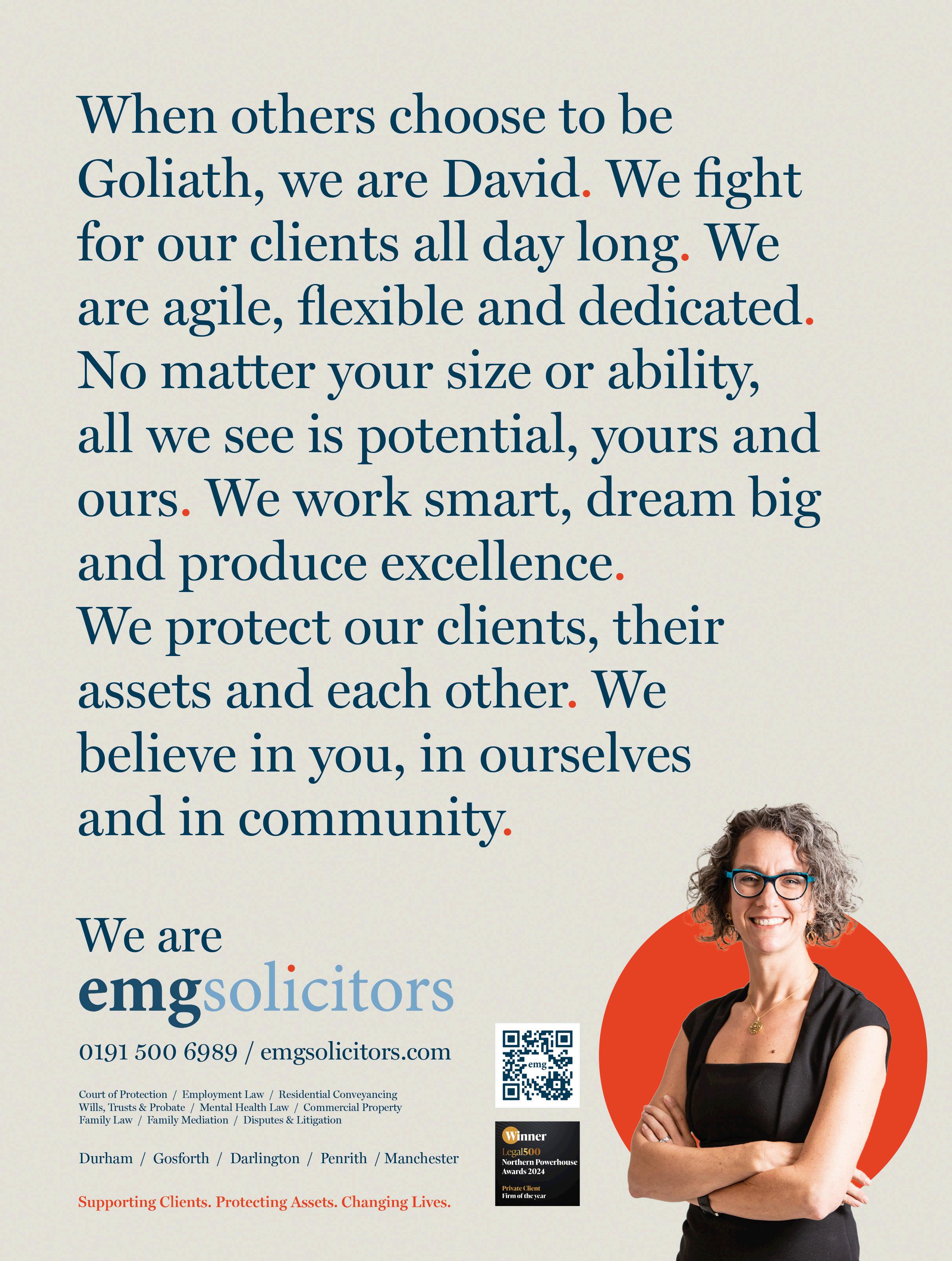FEATURED:
ELAINE STROUD JOHN MCCABE ALICE MCCULLAGH JUN RHEE LEO PEARLMAN ZOE LEWIS


ELAINE STROUD JOHN MCCABE ALICE MCCULLAGH JUN RHEE LEO PEARLMAN ZOE LEWIS

a Peachaus




WilliamsAli help business owners take control of their key transformational moments, whether scaling up, securing funding or creating an exit strategy.
What’s your plan?

For more information please call 0191 249 1736 or email: info@wacf.co.uk

Spotlight
Here, in a new feature analysing the stories dominating the region’s news agenda, Steven Hugill calls for clarity around train builder Hitachi’s future, cautiously welcomes Blackstone Group’s Cambois data centre plans and celebrates a Port of Blyth hat-trick.

Talking point


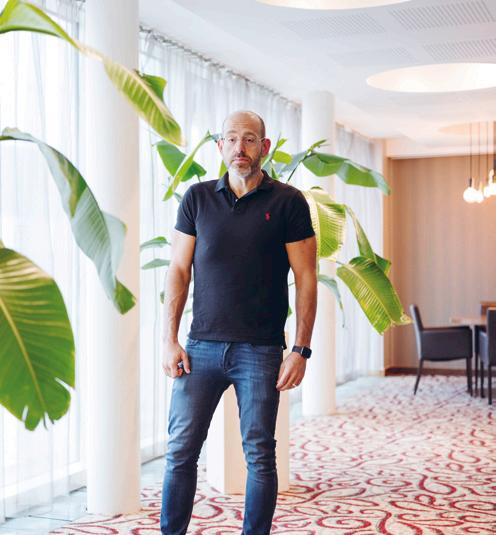
Fenwick shop floor – not necessarily a perfect recipe for portrait pictures.
Until I was introduced to Gillian!
A positive and spiritual force of nature, Gillian’s effortless elegance and joyful and playful character was a delight to shoot. We laughed throughout and captured some really good – and fun – pictures. And it does always help when there is champagne on tap!
Ben
Benoliel, photographer

Editor
Steven Hugill steven@netimesmagazine.co.uk
Business journalist
Colin Young T: 07808 974 533 colin@netimesmagazine.co.uk
Digital content manager
Kate Hewison kate@netimesmagazine.co.uk
Business development director
John Duns T: 07920 152 523 john@netimesmagazine.co.uk
Creative & managing director
Peter Mallon T: 07590 064 800 pete@netimesmagazine.co.uk
Partnership & marketing manager
Sarah Law sarah@netimesmagazine.co.uk
Digital marketing consultant
Sian Anderson sian@netimesmagazine.co.uk
Finance manager
Jill Brown jill@netimesmagazine.co.uk
Filmography
Andrew Lowe andrew@netimesmagazine.co.uk
Paul Geist paul.geist.photo@gmail.com
Contributors:
Peter Matejic
Henri Murison
Alice McCullagh
Martin Lawlor
Zoe Lewis
Photography: Christopher Owens www.christopherjamesowens.co.uk
Ben Benoliel www.benbenoliel.com
Mike Sreenan www.michaelsreenan.com
Angela Carrington Krzysztof Furgala www.thisisthebiggerpicture.co.uk
Jamie Haslam www.roamwithus.co.uk
Head office
0.09 PROTO, Baltic Business Quarter, Abbot's Hill, Gateshead, Tyne and Wear, NE8 3DF
All rights reserved. Reproduction, in whole or in part without written permission, is strictly prohibited.
Circulation:
To confirm our circulation please contact Andrew Dunn, Buxton Press, email: andrewdunn@ buxtonpress.co.uk
To amend your mailing address or remove yourself from our mailing list contact pete@netimesmagazine.co.uk
Contact:
@NETimesmagazine www.netimesmagazine.co.uk
Photography:
All photos taken by North East Times staff are copyright North East Times Magazine Ltd, and are taken solely for use in North East Times Magazine or products published by North East Times Magazine Ltd.
If you wish to use or publish a photograph taken for North East Times, please contact pete@netimesmagazine.co.uk
Advertising charges:
There is a £25 charge for every set of amendments, following the first initial set of amendments, which is free of charge for adverts designed by North East Times Magazine Ltd.
Cancellations:
If an advert is cancelled by the booker within a seven day period prior to our print deadline, the advert will be charged in full, plus VAT.
Editorial:
Editorial must be received by the 9th of the month or no responsibility is accepted for errors. The opinions expressed in this issue are not necessarily the views held by North East Times Magazine Ltd.
Advertisements:
Although every care is taken to ensure accuracy, the publishers regret that they cannot accept responsibility for loss or damage caused by an error in the printing or damage to, loss of artwork, transparencies or photos.
Complaints:
Regarding advertisements will only be considered for up to a week after publication. Advertising must be received by the 12th of the month. No responsibility is accepted for errors.
Print:
North East Times is printed by Buxton Press Limited, the multi award-winning printer based in Buxton, Derbyshire which specialises in the sheetfed lithographic printing of magazines, brochures and programmes.
North East Times is produced using vegetablebased inks combined with advanced innovative chemical-free plate and Heidelberg press technology and is printed on paper sourced from well-managed, sustainable forests.
Buxton Press is certified to ISO14001 and ISO9001 Standards; holds FSC® and PEFC Chain of Custody certification, offers Carbon Balancing via The World Land Trust and is currently working towards becoming a Carbon Balanced Printer.
@2024 Published by North East Times Magazine Ltd.














Home is where the heart is, and this edition of North East Times Magazine, writes Steven Hugill, provides demonstrable proof of the saying, with features highlighting emotional ties to the region that are catalysing return investments…
4Hello and welcome to the latest edition of North East Times Magazine.
Who are we without home?
What are we without our own small corner of the region?
How would our paths have led before us without the people and the communities, the pride and values, the friendships, the streets, the schools, the playing fields and the employers of home?
I found myself asking such – and more – as this issue came together.
As you will discover, our two longer-read features lean heavily on the importance of home and its qualities in shaping our respective psyches.
But they go much further than that, extending beyond the nostalgia to a reimbursement that seeks to benefit generations to come.
Take Gillian Ridley Whittle.
Today, she is founder of sustainable fashion brand Peachaus, a leading industry figure whose endeavours have taken her to the other side of the world and taken in a host of instantly recognisable labels.
But her North East ties have never once frayed, the only thing missing being the region’s accent on her tongue, the distinct dialect long chamfered away during time at Newcastle High School for Girls.
Even when she left the region as a teen, to live in Derbyshire, such was its calling that Gillian returned to study a fashion, marketing and design course at Northumbria University.
And having used that qualification as a springboard for a career that has taken in M&S, Debenhams and Topshop among others, she is now an active member of the institution’s alumni, providing tomorrow’s fashion leaders with counsel and confidence to achieve their goals.
It’s the same with Leo Pearlman.
A proud son of Sunderland – so much so he named his production company Fulwell 73 after an old Roker Park stand and Sunderland AFC’s last FA Cup success – he
too is giving back to the place where his family ran a business for more than 120 years.
And giving back in abundance.
Where a shipyard – the vestige of Wearside’s manufacturing heyday – once stood, soon will rise Crown Works Studios.
Spearheaded by Fulwell 73 and investment firm Cain International, the venture promises to create the second largest film and television production base in Europe.
With it, says Leo, will come as many as 8500 jobs, an annual economic boost of £336 million – and a great deal of emotion.
Indeed, such is its significance on his family that when Leo phoned his father, to say the plans had cleared their final hurdle, Pearlman senior hung up, too overwhelmed to speak in the moment.
Leo himself remains teary, though his demeanour owes a fair amount to a pledge made to the open water swimmers of his Sunderland team.
Promising to dive into the North Sea on the day construction begins – despite a horrendously deep aversion to the cold – he is now desperately seeking assurances work will begin in the relative warmth of the summer months.
Finally, as you read through this edition, you will notice a number of slight changes to features and platforms.
Like all businesses, our commitment remains unrelenting when it comes to improving our offer.
And our additions do just that, providing even more of the analytical, informed and insightful content that has become so synonymous with North East Times Magazine.
I hope you enjoy this issue.
Steven


Here, in a new feature analysing the stories dominating the region’s news agenda, Steven Hugill calls for clarity around train builder Hitachi’s future, cautiously welcomes Blackstone Group’s Cambois data centre plans and celebrates a Port of Blyth hat-trick.
Words by Steven Hugill
4Keep rail manufacturing on track Theresa May’s robotic dancing. Ed Miliband’s bacon sarnie.
Boris Johnson and touch rugby. John Prescott and an egg.
The Tory ‘power stance’. Nick Clegg’s ConDem disaster.
No matter the party, no matter the politician, there are some Westminster train wrecks you just can’t forget.
Equally memorable are the litany of promises that aren’t kept, or, at most, are allowed to uncouple from parliamentary pledges and drift into the sidings.
Take Hitachi’s 750-job factory in Newton Aycliffe, County Durham.
When the train building plant opened in 2015, in the cradle of the railway no less, then Prime Minister David Cameron told guests the £82 million base would mark “the start of a great revival… in North East manufacturing”.
And, for a while, his prediction held weight.
An initial agreement to make rolling stock for East Coast and Great Western routes, under the Government’s InterCity Express Programme, was complemented by further deals to supply trains for Scottish and East Midlands lines.
But, just like he who ran when his Brexit door was kicked in, Hitachi’s fortunes have undergone a marked about turn.
Its order book is running increasingly dry,
the parching caused in no small part by the Government’s decision to hold off on triggering an extension of West Coast work.
Ministers’ Great HS2 Retreat – after Hitachi had won work alongside similarly struggling operator Alstom to deliver high-speed stock –has hardly helped simplify matters either.
Westminster says conversations are continuing with all providers, including Aycliffe’s flagship Japanese tenant, and that it expects an order pipeline to “remain strong” in the years ahead.
Indeed, as North East Times Magazine went to print, talks were said to be underway with Alstom over a fresh Transport for London contract, which would stave off the immediate threat of redundancies at its Derby factory.
For the sake of Hitachi, its workers and its supply chain, those discussions must head north – and fast.
Because to see a firm – whose lines connect to the very tracks that catalysed global train travel – hit the buffers less than ten years after its grand arrival, would be an incredible and appalling waste.
Hitachi’s factory, right from its opening day, has been a popular backdrop for political visits, a 101 location for communications teams seeking pleasing press shots of elected members looking at empty train shells in hard hats and highvisibility jackets.
However, if urgent action isn’t forthcoming,
they may well be poring over an altogether different industrial carcass.
Even on the dullest of days, when clouds darken angrily or a stubborn mist rolls in, you do well to miss the vivid blues, pinks, reds, oranges and greens spattered across the home fronts of Cambois’ Unity Terrace.
Yet even they’ve felt shrouded following the collapse of Britishvolt’s 3000-job vehicle battery factory plans, on nearby ex-Blyth power station land, and Recharge Industries’ subsequent failed follow-up bid.
The mournful veil, though, may about to be lifted, with Blackstone Group pressing ahead with a deal to turn the idle 235-acre site into a £10 billion data centre.
According to parties close to the agreement, the hub has potential to “kickstart an entire tech industry cluster”.
We have, of course, been here before.
Britishvolt’s demise and Recharge’s retreat provided a reminder, if needed, that no project is ever confirmed until doors are officially opened.
Blackstone, though, offers the best
hope yet.
Britishvolt sought to take on the big boys while barely in short trousers, with no customers and no ready product. Blackstone, however, does.
Hailing itself as the “world’s largest alternative asset manager”, it has data centre subsidiary QTS, which comes complete with sites across the US and Netherlands.
And at Cambois, it would have a site that has long been championed for its air, road, rail and sea access, ready-made power supply and willing local workforce.
What we need now is for its plan to plug into that landscape, and create longterm economic success.
Because after two high-profile failures, we can’t afford to see its colours run too.
Remaining on the South Northumberland coast and congratulations to Port of Blyth, which has chalked up a record financial performance for a third consecutive year.
Group turnover grew to £31.5 million, with operating profit and pre-tax profit rising to £3.9 million and £3.6 million, respectively.
The successes were driven by clean energy sector work, with the base supporting the delivery of two of the world’s largest offshore wind farms.
It also oversaw its biggest oil and gas decommissioning project, with thousands of tonnes of rig parts broken up.
North East Times Magazine visited the port at the beginning of the year, bracing a none too shy January wind during a river trip, to see its progress first-hand.
Busy units mirrored an equally vibrant waterway, with the metallic skeleton of the new Energy Central Learning Hub – which will train tomorrow’s workers from a riverside spot on the port’s estate – matched by JDR Cables’ soonto-open subsea powerline factory on Northumberland Energy Park.
It all made for an extremely impressive sight, and one that served to highlight again our region’s place at the forefront of the green industrial revolution.
‘We won’t become complacent’ –Read more from Port of Blyth chief executive Martin Lawlor about the base’s results, its future plans and its commitment to helping the next generation, on pages 70 and 71.

Gillian Ridley Whittle spent years at dizzying heights in the world of high street fashion, her CV reading like an industry who’s who. But she gave up the corporate world three years ago, to pursue a lifelong dream of setting up her brand Peachaus, which aims to balance sustainable and ethical products with beautiful, feminine and quality designs. With the backing of Cedric Wilmotte, chief executive at luxury fashion brand Michael Kors, and alongside a team with more than 100 years' fashion world experience, Gillian launched the brand in March 2022. Initially planned as an online service, she earlier this year opened her first Peachaus boutique in Covent Garden before recently returning to her native North East, to introduce the range to Fenwick customers. Here, she charts her career journey with Colin Young, and reveals hopes of one day opening a store in Newcastle.

Words by Colin Young
Photography by Ben Benoliel
4It’s nearly four o’clock on Peachaus’ first day in Fenwick.
Gillian Ridley Whittle has been on her feet for more than eight hours in a quiet corner on the first floor of the iconic Newcastle store.
It is three days before Peachaus’ official launch and, after a morning of putting the final touches to its range of luxury, ethical and sustainable underwear, loungewear and activewear, women of all ages are slowly starting to browse the rails.
Gillian is wearing a Salix blossomembroidered cotton sweatshirt and Sitka joggers in shoreline peach.
It’s an outfit as cool, light and breezy as she is.
“It feels like a warm hug,” she says, as she bounds over to the seats in the middle of the Peachaus pop-up.
“The fabrics are so soft and comfy.”
She resists the temptation to chat with a customer and continue the handson meets and greets, which is one of the main attractions of her sustainable fashion brand’s arrival – and her own return – to the North East.
Gillian says: “I’ve been so excited to come back up here – I haven't been back for about three years.
“My dad lives here, and I still feel a strong connection.
“I feel like I've come home after 30 years; it’s such a warm place.
“People in the North East are so friendly, and the Geordie accent is amazing.
“People keep asking me where my Geordie accent is. I just say, ‘I went to a posh girls school’; I’m sad I never had one.
“I first got into Fenwick 18 months ago, when Adam Kelly, the buying merchandising director, was so gracious
about giving me an opportunity with the brand and a prime footage concession in the London Bond Street store at Christmas 2022 for three months.
“It went so well, we were invited back last Christmas, and being in Newcastle is like fulfilling the dream.
“It feels like this little northern girl, who always had her heart and sights on doing something amazing, has had her dreams come true.
“And I'm talking to them about my vision to open a 5000sq ft venue – that is really relevant, because people are going to be consuming less clothes, as we're using and depleting all the natural resources.
“The circular economy and focus on recycling is getting bigger, so fashion – and being a fashion brand – has to be about the experience, as well as responsibly-sourced products and clothes.
“I imagine a townhouse combining products with experience, so it’s an opportunity to create an experiential venue that is inclusive and has a feminine, positive energy, where you can create your own experiences.
“There will be space to work but it's more about reflective time; you can do Pilates, yoga, breathing, meditation, spinning, have your hair and nails done, eat and drink – all with a fully immersive shopping experience, such as bra fitting.
“Personalised shopping and pamper experiences will be central to it.
“Nobody is doing this anywhere.
“I need investment, and that's my plan for next year.
“And I’d love to do it in Newcastle,” adds Gillian, whose extensive fashion industry CV includes senior roles at M&S and Topshop.


She already has some impressive backing to make her plan a reality.
Not only is Michael Kors chief executive Cedric Wilmotte supporting her venture, but so too is recent investor Tracy Lewis, who is focused on female founders and sustainable business, and who has her own impressive background in the underwear sector.
And Gillian cannot wait to tell her story; the one that charts her journey from Corbridge to Newcastle High School for Girls and Northumbria University, to travelling the globe with some of the industry’s major players and, today, back for a photoshoot and interview in Northumberland Street.
She says: “It's taken me a long time to come full circle.
“When I finished my fashion degree, and I got a first, I did underwear to be worn as underwear or outerwear, and my business plan was to set up a shop with speciality underwear.
“It took me a long time to do it.
“But that's confidence, isn't it?
“Confidence and experience.
“At school, you're told to follow a path; earn a good salary and buy a nice house and a car that will give you happiness.
“I chased the big jobs and the ego-led decisions, but I’ve no regrets because I learned so much along the way.”
Gillian knew what she wanted from a very young age.
She loved dressing up and making her own outfits.
Guided perhaps by her father Geoffrey – a Hexham solicitor renowned for his ‘dandy, going-out’ clothing – she was given her first sewing machine at the age of seven.
When she moved to Chesterfield aged 16 with her mum and stepdad, Gillian would trawl through the town’s market
at weekends for fabric to make outfits to wear later that evening.
She always had her eye on the fashion, marketing and design course at Northumbria University after completing a foundation course in Derbyshire, and is now part of the institution’s alumni.
During pop-up week, she delivered a talk on her career.
Gillian says: “It was such a thrill.
“I'm going to do some projects with students, and I want to forge deeper connections to support them.
“I want to help them with industry experience and encourage them to be themselves.
“We’re brought up with so much focus on grades, but it needs to be about selfdiscovery and finding out what ignites you to live your most fulfilling life.
“When I started my fashion degree, I probably got the lowest mark in the first year, which was down to a lack of confidence and thinking I'm not going to be as good as everyone else.
“By my fourth year, though, I was one of two first-class honours degrees.
“When I started on a graduate training scheme at M&S, I lacked confidence.
“I didn't know who I was, how I was supposed to act; I was comparing myself to others.
“Corporate businesses can be challenging places.
“I’ve worked hard, and from the outside looking in, I have achieved a lot, but I always felt there was something more.
“Now I have broken free, creating my own brand and world, and I feel like I've got all the confidence in the world – and that every day is a joy.”
After university, Gillian moved to London and hopped on the catwalk’s corporate conveyor belt.
Headhunted more times than a white rhino since, she collected roles among the fashion labels and stores – working for Bay Trading, Freemans, Debenhams and then back to M&S, in 2004, for ten years, to lead its lingerie division and launch beauty.
She’s delivered in knitwear, smartwear, underwear – anywhere she could use her talents.
After the births of sons Sebastian and Felix, who are now teenagers, Gillian was offered an opportunity to work for Target, in Melbourne, Australia, by Stuart Machin, who is now M&S’ chief executive.
Her mission was to turn around the fortunes of the operator Down Under, which was struggling to keep up with discount store Kmart that had swooped on its market share.
Gillian says: “I got to Australia and I had a massive job, a big team and a good salary package – everything I thought I’d always wanted.
“I thought, ‘I'm going to be the happiest I've been in my life’.
“But I found it very challenging, very demanding and very stressful.
“It was a 24/7 job, which impacted on family life and the ideal of outdoor culture we were seeking.
“I was really proud of what I delivered, but it was tough and the stress wasn't good for me.
“I started to suffer from anxiety, I wasn't seeing my family and I was running on empty, doing nothing for myself to stay in balance.
“I realised I was part of a fashion system that was broken, that was chasing profit at any cost to people and the planet.
“I was bottling up the stress, felt ashamed and didn’t understand why I felt that way – after all, this was everything I always thought I wanted.

“It was like a pressure cooker.
“In the end I left, had three months off and created the concept of Peachaus.”
From playing with the company’s name by the beach near Melbourne, to sitting among the serene pastel shades in her Fenwick concession and welcoming her fellow North Easterners to the colourful and comfortable Peachaus range, it has taken five years – and then some.
Gillian says: “It was bizarre.
“Some friends came to stay, I said when the time was right I wanted to launch my own brand – they’re quite creative people as well, so we did.
“We worked on the name.
“We lived by the beach, but ‘Beach House’ wouldn’t travel as an international brand, so we picked peach because it's tactile, feminine and soft.
“But ‘Peach House’ wasn’t how we wanted the brand to be.
“Then we thought ‘haus’ – German for house – because it's got ‘AUS’ for Australia and ‘US’ for community.
“It’s about community, peace, each of us, connected communities in collaboration.
“It’s quite a deep name, I’m quite a deep person.”
Gillian adds: “Peachaus is about everyday beautiful clothing and underwear, but it's actually more than that.
“When people experience our bra fitting in our London store, for example, it blows my mind seeing their faces.
“Some may have body image issues, most lack confidence in who they are, but they say they’ve never felt so comfortable, so accepted, and the bras feel like they’re still naked – it’s like wearing air!”
After another bruising role on her return to the UK – “putting the fizz back into Topshop” – Gillian found herself with a redundancy package, investment from business partner Cedric and a head full of designs and ambitions.
She sourced materials, such as recycled Italian lace, organic cottons, bamboo and recycled polyester, using manufacturers in Portugal and India with gold standard factories.
And she has teamed up with Sophie Morgenthaler, formerly of Victoria’s Secret and Myla, who is design and product director, and instrumental in the creation and innovation behind the range, and operations director Sarah Edwards, who also worked for M&S and Debenhams at board level.
She says: “They’ve worked with artists, true creatives on iconic prints and embroideries, to make their products collectable and unique.
“They’re fluid in the fit, to go from bed to beach to bar, and the underwear has unique simple sizing based on a woman’s body today, rather than outdated sizing rules.
“We're going to create things that are really lovely, pretty, beautiful and comfortable, and we're sourcing it really well and making sure everyone's happy
along the way.
“It feels like this little northern girl, who always had her heart and sights on doing something amazing, has had her dreams come true”
“We want to set a new precedent for the fashion industry because it can be a kind and good place; we just need to revolutionise it.
“One of the reasons I left M&S was because they set up a direct model, which was all about growing their margin by four percentage points.
“They went to cheaper factories and cheaper sources, and impacted their quality.
“And I think the customer sees that.”
Gillian adds: “There's a big shift that needs to happen, to put the quality back into products, pay the right price at the factories and source it ethically, so people get fair value through the whole chain.
“That’s why I'm doing what I'm doing.
“I want to be part of the change that has to happen in the industry, not part of the problem.
“And I love my independence.
“I love the fact no two days are the same, and I love the buzz we’re creating.”
Enter our Peachaus giveaway

North East HR&D Awards
Photography, courtesy of Reach plc, by Claire McKie-Reid & Steve Brock
The North East HR&D Awards return in June, ready to once again celebrate the sector’s leading organisations and individuals. And this year’s ceremony promises to be an incredible evening after a near 40 per cent rise in nominations.
www.northeasthrdawards.co.uk
LinkedIn: North East HR&D Awards
The wait is nearly over.
There are just days to go until the 2024 North East HR&D Awards – and this year’s event promises to be the best yet, following a huge rise in nominations.
Celebrating the amazing organisations and people working across HR, learning and development and related specialisms, the showpiece ceremony will take place at The Fed, in Gateshead, on Thursday, June 6.
Awards will be handed out across 12 categories, with judges from the North East Work and Talent (NEWT) advisory board poring over submissions that have this year increased by nearly 40 per cent.
Elouise Leonard-Cross and Sarah Carnegie, joint chairs of NEWT, which reflects a cross-section of expertise and experience from organisations across the region, say: “We are so excited for this year’s ceremony.
“We all know the North East is a fabulous place to live, work and thrive, and the HR&D Awards are a fantastic way of showcasing that.
“They not only champion the brilliant work of people professionals across our region – whose excellent practices make a positive, daily impact on the working lives of so many people – but highlight too the North East’s ambition, pride and innovation.
“And the fact we’ve seen a near 40 per cent rise in nominations only emphasises their importance and popularity.


“Thank you to everyone who has submitted an entry, and a big thank you too to our category and event partners – your generous support is incredibly appreciated.”
This year’s event also comes with a new collaboration, with North East Times helping bring the awards’ 16th iteration to life.
Pete Mallon, North East Times’ creative and managing director, says: “We drive conversation around business, the economy and policy, highlighting those at the forefront of moves to deliver growth and support the region in reaching its potential.
“Our HR&D Awards partnership is an extension of that.”
Award category partners include Esh Group, Jackson Hogg, MI-Say, Newcastle University Business School and Northumbrian Water.
Further category partners are NPH Group, People Science Consulting, Sullivan Brown HR Recruitment, Tailored Thinking, TDR Training Ltd and Womble Bond Dickinson.
In addition, the event is supported by programme partner North East Apprenticeship Ambassador Network and photobooth partner Talentheads.
For more information on further opportunities to support this year’s ceremony, which include associate and award category partnership, and buying a table for the night, contact Lesley Hampson on 07748 908058 or email lesley@netimesmagazine.co.uk
Alternatively, contact events manager Dawn Owens on 07789 666437 or email dawn@netimesmagazine. co.uk
For more information about the event, visit www. northeasthrdawards.co.uk

North East Automotive Alliance
For more information about the organisation, its work and membership packages, call Laura Gage, marketing and PR manager, on 07703 819228.
The latest North East Automotive Alliance Awards shone a spotlight on the businesses and individuals driving great progress across the region and beyond. Here, North East Times Magazine highlights category winners and how their successes are set to inspire the next generation.
LinkedIn: North East Automotive Alliance www.northeastautomotivealliance.com
The North East Automotive Alliance Awards 2024 celebrated future talent, inspirational leaders and the forward-thinking businesses cementing their position within the automotive industry.
Organised by North East Automotive Alliance (NEAA), the UK’s fastest-growing automotive cluster, the awards were held at Ramside Hall Hotel, in Durham, in late March, and hosted by national journalist and skills campaigner Charlie Charlton.
The event brought together nearly 300 attendees and raised £16,500 for future talent.
Winning companies must make their award donations to schools throughout the North East, in an effort to increase STEM engagement and awareness of automotive careers, as well as the wider advanced manufacturing sector.
Since the launch of the awards in 2018, more than £76,000 has been made available to support local talent via STEM programmes in schools.
On the night, Vantec Europe scooped £4000 across two award categories, which will go to Washington Academy.
CMYK Digital Solutions will share its £2000 across two schools – Warley Primary School and Bill Quay Primary School – which have both qualified for the VEX Robotics World Championship, in Dallas.
The award winners were:
Geoff Ford MBE Apprentice Award, sponsored by Gateshead College
• Megan Gorman – Unipres (UK) Limited
Graduate Award, sponsored by Marelli
• Nathan Tshibuyi – Nissan Motor Manufacturing UK
Innovation Award, sponsored by Newcastle University
• Multinational:
o Komatsu UK Limited
• Highly commended:
o Marelli
• SME:
o Charpak Limited
Digital Transformation Award, sponsored by NA College
• Vantec Europe Limited
Environmental and Sustainability Award, sponsored by Nissan Motor Manufacturing UK
• Multinational:
o Lear Sunderland
• SME:
o Houghton International
Employer of the Year Award, sponsored by Invest South Tyneside
• Faltec Europe Limited
SME of the Year Award, sponsored by North East Institute of Technology
• CMYK Digital Solutions Limited
Outstanding Contribution Award, sponsored by Sunderland City Council
• Martin Kendall, Vantec Europe managing director
A drinks reception was sponsored by Smart Manufacturing Solutions and SMS Technology, with Horizon Works sponsoring the awards brochure.





As a General Election hoves increasingly into view, so too does focus continue to amplify on the progress of the Government’s manifesto pledges, not least its ‘levelling-up’ agenda. Here, in a new feature, senior figures from the Joseph Rowntree Foundation and Northern Powerhouse Partnership analyse the flagship programme in detail, assessing its achievements and marking other areas for improvement.

‘LEVELLING-UP’ MUST MEAN MORE THAN A MAYOR FOR THE NORTH EAST
Peter Matejic, Chief analyst
Joseph Rowntree Foundation
Much can happen over the course of a parliament.
Optimism for a new model of governance, that would tackle regional inequality headon through the ‘levelling up’ agenda of Boris Johnson, was on the tongue of many in local government and politics at the end of 2019.
The Conservatives had just returned an 80-seat majority in the General Election on the back of a string of wins in seats outside their traditional southern England strongholds.
The phenomenon of the ‘Red Wall’ dominated the news cycle, describing historically Labour-voting constituencies like Sedgefield and Bishop Auckland that had swung to the Tories amid the deadlock over Britain’s withdrawal from Europe.
Fast forward to 2024, with local elections and the prospect of a General Election by the year’s end, and these grand narratives of change appear to have fallen dramatically flat on their face.
Citizens in the North East are experiencing understandable political fatigue as the Westminster soap opera trudges on, and the prospect of meaningful ‘levelling-up’ progress in this parliament moves further
and further away from reality.
In January this year, the Joseph Rowntree Foundation published its annual UK poverty figures, showing in stark detail that it has now been almost 20 years and six Prime Ministers since the last prolonged period of falling poverty.
Latest data for the North East shows 600,000 people in the region in poverty, equating to around one in every five people.
The report also showed the local authorities of Middlesborough and Newcastle had staggering child poverty rates of 41 per cent and 38 per cent, respectively.
It is hard to look past such bleak figures that, in practice, mean the next generation in the North East living out their childhoods hungry and cold.
With a watershed devolution deal, it’s time for all political parties to commit to a re-think of what ‘levelling-up’ truly looks like for the people of the North East.
From our perspective, this means designing hardship out of the social security system through an Essentials Guarantee, baked into Universal Credit, to ensure nobody is going without life’s essentials.
It means the creation and fair distribution of good quality, secure and inclusive employment, where workers are treated well.
It also means housing solutions focused on the needs of the community – be that tenure types, size or affordability.
These policies are not a panacea; but they are a starting point to deliver real change for an agenda that to date has offered very little.


Henri Murison, Chief executive Northern Powerhouse Partnership
It’s been nearly ten years since George Osborne promised a Northern Powerhouse – a long-term strategy to fundamentally transform the Northern economy, by transferring power to places through devolution and on specific issues such as transport.
Then, five years later, Boris Johnson put his own spin on the concept. In his first speech as Prime Minister, he promised to “answer the plea of the forgotten people and the left-behind towns”, unleashing “the productive power” of every corner of the country.
‘Levelling-up’ was born.
But with a General Election looming, voters will likely be asking, what has – and has not – been achieved since then?
Here in the North East, where I started my career as a councillor at Newcastle City Council, it’s been a mixed picture.
In 2012, the council negotiated with Greg Clark, then Cities Minister, to secure one of the most generous ‘city deals.’
Unlike most of the country, increased revenue from business rates would now go straight to the local authority instead of the Treasury, providing a much-needed long-term revenue stream worth millions every year.
This would create a virtuous circle by allowing the city to invest in unlocking what has become the Helix site and wider regeneration that is driving more economic growth, generating even more business rates revenue.
This has been such a resounding success that many, including we at the Northern Powerhouse Partnership, are calling for other areas to get more of the same – what is called fiscal devolution.
Less reliance on Treasury funding would protect local government from shifting sands in Westminster, and allow them to plan more strategically for the long term.
That said, there’s no denying the North East continues to struggle with some of the most difficult challenges.
Workers here earn less than any other part of the country, roughly £27,600 in 2021 – almost £10,000 less than the average salary in London.
This region also has the highest rate of child poverty of anywhere in the UK, meaning education and health outcomes are worse as a result.
It is now time for the North East to make its own luck, unleashing untapped economic potential through investing in manufacturing and wider clusters alongside re-opening the Leamside Line as a Metro extension, then the full rail link between Washington and County Durham.
There are no quick fixes but, with the right investment, the North’s productivity will rise, and we’ll contribute more to the UK economy with more high-quality, well-paid jobs for Northern workers.
With high-profile devolution deals now in place across the entire North East, how important is it that the region’s two mayoral-led combined authorities complement their separate goals with a united approach that better integrates the north and south of the region, and creates a globally attractive brand and investment narrative?

GAVIN CORDWELLSMITH Chief executive Hellens Group
Devolution is one of a number of policies to emerge in the last few years, alongside freeports and investment zones, that are designed to stimulate regional economic growth, especially in the areas of the UK requiring ‘levelling-up’.
The challenge is how to balance progress with competition.
It is to be expected that both mayoral authorities in this region will set out to attract business investment to their respective patches, for economic and political reasons.
And they will offer whatever incentives they have at their disposal to do so – inevitably, one region will miss out.
This will become even more apparent if the two mayors happen to represent different political ideologies to each other or the incumbent Government.
Given its vast geography, the North East Mayoral Combined Authority is likely to develop priorities around areas such as regional connectivity that are widely different from Tees Valley, which is far more compact.
The picture is also complicated by the fact each local authority retains its own local development plan.
Although desirable for everyone with crossregional interests, it is difficult to imagine a joined-up strategy emerging, which adequately meets the needs of both authorities, given the likely political, economic and spatial differences.

JONATHAN WALLACE Chair Lichfields
Hailing from County Durham, I have always seen the North East as a single region, and I find it strange it is now effectively split into two, with the North East Mayoral Combined Authority to the north and the Tees Valley Combined Authority to the south, and each working independently to promote their interests.
However, the North East is a small region on the world stage.
Even if we make comparison within the UK, the combined area is much smaller than Yorkshire or even Greater Manchester.
This makes it all the more important to work together, to sell ourselves to potential investors.
Collectively, the region has huge and complementary assets and strengths – from our world-leading automotive and advanced manufacturing sectors, to the important role we are playing in the transition to clean energy –and we need to make the most of this.
That means adopting a joined-up approach, a single narrative that talks up our strengths alongside a co-ordinated attitude to selling the region to potential investors.
We must put aside inter-regional and political rivalries to maximise the prospects of securing investment that will deliver higher value jobs and benefits across the North East as a whole.
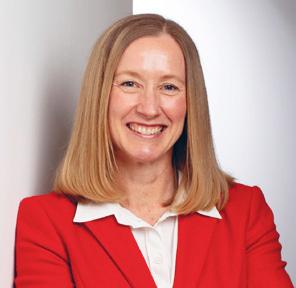
ELAINE STROUD Chief executive Entrepreneurs’ Forum
The establishment of the new North East Mayoral Combined Authority will create one of the largest, by geographical area, mayoral zones in the UK.
Devolution has not been an easy process, but the new deal will put us on par with other Northern regions, such as Tees Valley, Greater Manchester and Liverpool.
At the recent Convention of the North, both the North East and Tees Valley were under-represented, with debates heavily focused on Yorkshire and the North West.
The new mayor must build the narrative and investment case for the North East, but also work with the Tees Valley mayor, to ensure our combined voice is heard.
There are areas where it will be beneficial for the North East and Tees Valley mayors to combine forces, such as opportunities around developing our offshore wind capabilities and infrastructure projects that improve connectivity in our region and the rest of the UK.
The creation of a green superport, capable of serving the entire North East, would be another example where the two mayors could work closely.
Together, these deals support more than 2.5 million people across the wider North East.
Both mayors are mandated to support their own populations, but let’s hope there is collaboration rather than duplication.

JOHN MCCABE Chief executive
North East
Chamber of Commerce
From a business perspective, geographical boundaries are just that – they don’t define the ‘right’ areas in which to trade and sell.
Those footprints can be as small as a high street, or as large as a continent.
What matters is having the same firm foundations: access to skilled people, good quality infrastructure and effective supply chains.
From this perspective, the region’s two mayoral elections present an unparalleled opportunity for collaboration.
The Tees Valley and the new North East area – spanning Northumberland to County Durham –together make the benefits of devolution available to everyone living and working in the region.
This is an opportunity to grab with both hands.
The North East brand is one that works – from Greggs to Sage to the Great North Run. The narrative is already there.
It’s another asset the new authorities can build on, by bringing the diversity and strength of their respective areas together.
Don’t forget collaboration already happens.
Organisations like Business Durham look both north and south to unlock opportunities, working closely with the local and combined authorities across the region.
So, from businesses’ perspective, it’s business as usual: work together and deliver for everyone right across the North East.
*In Focus - read more from the North East Chamber of Commerce in a special publication on pages 49 to 58

Karpet Mills
To find out more about Karpet Mills’ commercial flooring division and how its services could help your business, contact commercial flooring manager Declan Clark on 0191 286 6684. Alternatively, email Declan using the address at the top of this article.
To view Karpet Mills’ full range of floor coverings, visit its showrooms at Kingston Park, Gateshead, Hetton-le-Hole, Hexham and Benton.
Any business needs solid footings to thrive. So when plastic packaging maker iPac sought to dig deeper marketplace foundations through an additional County Durham base, it chose Karpet Mills to help turn its blueprint into reality. Here, Steven Hugill speaks to Karpet Mills’ director Joel Dickinson and iPac managing director Jonny Catto, to learn more about the project and its significance within the sixth-generation floorings group’s diverse portfolio.
www.karpetmills.co.uk
declan.clark@karpetmills.co.uk
Instagram: karpetmills
Strong businesses arise from robust structures.
A talented team; a market-leading product; a healthy financial book – each fundamental to growth and all built from comprehensive operational frameworks. Success is driven too by a business’ very foundations, from the brick-and-mortar hubs that deliver present-day services while lending room for tomorrow’s innovations. And when thermoformed plastic packaging maker iPac sought to extend its physical footprint, in a new 40,000sq ft production and warehouse base on Tanfield Lea Industrial Estate, near Stanley, County Durham, it turned to sixth generation floorings group Karpet Mills to do just so.
Harnessing the vast experience and knowledge of its commercial flooring division, Karpet Mills designed and fitted coverings tailored to family-owned and managed iPac’s unique needs.
Specialist safety flooring – complete with integrated skirting – was added to communal routes leading to production areas, with similarly hard-wearing covering laid in a staff canteen and changing areas to meet heavy footfall.

Further support was provided, through luxury vinyl tiles and carpets, for office space and the site’s reception area.
“We’re thrilled with the look and finish of the job; iPac has been a fantastic client to work with,” says Karpet Mills’ director Joel Dickinson.
He adds: “We’ve delivered products to a very high specification that meet iPac’s budget, as well as its functionality needs and aesthetical requirements.
“It has been great to play a part in the building’s creation.”
Jonny Catto, iPac managing director, adds: “We initially approached Karpet Mills regarding office carpets.
“However, it quickly became apparent their offering fitted our needs across the wider site.
“As a producer of food-contact packaging, standards and specifications are critical in ‘high-care’ areas, and we had a variety of needs.
“Karpet Mills assisted us in determining appropriate specifications and designs, and provided a flexible and professional service throughout our site development phase.
“We’re extremely proud of the standard and finish, and are absolutely delighted with the finished article.”
The significance of the project, though, extends much further than bolstering iPac’s boundaries and, by association, its growth ambitions across core food and pharmaceutical markets.
For Karpet Mills, whose 146-year history includes spells as a cabinet maker, coffin manufacturer and furniture purveyor, it emphasises an enduring adaptability that continues to maintain the firm’s presence at the head of the floor coverings market.
With its premium Designer Flooring business – which

recently worked on Jesmond’s deluxe Towers Court apartment complex – supplemented by an order book that melds school, dental surgery, care home and local authority work with stellar names such as Durham Cathedral and the refurbishment of Northumberland’s lavish Matfen Hall hotel, Karpet Mills’ offer is as rich as it is diverse.
Joel says: “We are familiar to many people as the company that supplies luxury residential carpets and flooring.
“But our commercial flooring division is an equally important part of the business, and the two complement each other very well, delivering very high specification finishes that fit clients’ varying budgets.
“Our commercial flooring offer delivers all types of products, from hard-wearing carpet tiles to stain resistant polypropylene broadlooms, gel-backed velour, vinyl and safety flooring, stair nosings and more.
“And because we’ve been operating for six generations, we have a very broad bank of experience.
“Such knowledge and expertise cannot be bought; it comes from years of delivering projects and understanding the nuances – and potential pitfalls – of every job, which is hugely valuable for a client.”
Joel adds: “Flooring can be a complex sector, but with the expertise of our dedicated team, which plans and designs projects from inception to fitting, we’re able to deliver the best service, to the highest
specification and standard, whatever the job and budget.
“And because we’re able to help clients navigate the whole process, that level of support is particularly invaluable when businesses move premises or expand, like iPac.
“If a client is returning a property to its original condition at the end of a lease, for example, we can provide products to help with that, all while keeping costs down.
“Similarly, if a business is fitting out new premises, which can often be a daunting proposition, our breadth of knowledge and experience means we can support that too.”
And such balance, says Joel, leaves Karpet Mills well placed to grow across the coming year.
He says: “Despite the well-documented economic headwinds, we’re extremely excited for 2024.
“We’ve seen a really good start to the year, on the back of a strong 2023, and have some exciting projects in the pipeline.
“We worked really hard last year to navigate inflationary challenges, which included focusing on accessing high volumes of flooring ranges to keep prices incredibly competitive.
“Added to the green shoots we’re seeing in the economy, it leaves us very optimistic for the months ahead.”
Muckle LLP
For more information about Muckle LLP, call 0191 211 7777 or visit the firm’s website by using the address at the top of this article.
To learn more about the Neurodiverse Lawyer Project, visit www. ndlawyerproject. org.uk/
To mark this year’s Neurodiversity Celebration Week, Melissa Henderson, who recently qualified as a solicitor at Muckle LLP, shares her experiences of working as a neurodivergent lawyer at the leading North East law firm.
www.muckle-llp.com
@MuckleLLP
Can you tell us a little about your neurodiversity?
I was first diagnosed with ADHD and autism while working at my previous job, around four or five years ago. I remember finding it really difficult to manage my workload, and I would get distracted easily. It was my partner, who works with children and adults with disabilities, who spotted the signs and encouraged me to get my diagnosis. The whole process took around a year.
What sort of barriers have you had to face?
I’ve had to adapt to certain ways of working, and I’ve come to realise making small changes can allow me to still work to the best of my ability. In a previous role, I was becoming stressed and struggling to manage my workload. I often found I would become extremely burned out following periods of extreme busyness –this was often more debilitating than regular burnout, as I would suffer from autistic burnout. Autistic burnout is unique to autistic individuals, as it’s brought on by stressful periods and from masking autistic traits, which is something I would automatically do at work. Recovering from autistic burnout takes longer – in some cases, months or even years. I’ve learnt a lot about myself since experiencing this, the most important of which is not to mask my autistic traits.
How have you adapted to working life since your diagnosis?
The biggest impact is learning it's okay to ask for support or help when facing challenges. I’m gentler on myself in tough situations, and instead of assuming
I can't do something, I've acknowledged some tasks might be more challenging for me – and that’s okay. Although I've been open to exploring different ways of working in certain aspects of my job, I'm also aware of the importance of meeting certain expectations and targets within my role. The most important thing that has helped me has been learning to find a healthy balance between the two. This way, the work still gets done, and I still get the support I need.
What advice would you give to SMEs trying to be more inclusive?
The most important thing a business can do is carry out training courses to gain a basic understanding of neurodiversity. There can be a lot of misconceptions around the term; many people think it’s either a learning disability or mental illness – that’s not the case. It’s a neurological difference in the brain. There can be a lot of different branches, meaning not every single person needs the same type of support. Just like neurotypical individuals, no two neurodivergent people are the same. We should learn to celebrate our differences and champion our unique personalities and skills. I think many employers might be a bit wary, and believe they will have to make costly adjustments when hiring someone who is neurodivergent. But these accommodations can often be as minor as allowing someone to wear headphones to help with concentration, or allowing them to work from home.
How has Muckle LLP supported you?
It has been incredibly supportive from day one.
Ever since my first interview, when I spoke about my involvement with the Neurodiverse Lawyer Project, my colleagues have been very accommodating and have allowed me to continue working on an issue I’m so passionate about. Having regular check-ins with my colleagues and management helps keep me focused on my work. Having the flexibility to work from home on certain days, and allocating thinking time before and after meetings, also helps. Although these adjustments may seem minor, I appreciate Muckle’s respect and mindfulness towards my needs.
"There can be a lot of misconceptions around the term neurodiversity; many people think it’s either a learning disability or mental illness – that’s not the case. It’s a neurological difference in the brain, and there can be a lot of different branches, meaning not every single person needs the same type of support"
A comfortable working environment
In December 2023, Muckle LLP was the first law firm in the North East to receive B Corporation® (B Corp™) status.
This groundbreaking achievement reflects Muckle LLP’s unwavering commitment to its ESG strategy and continuous improvement, leading the charge in ethical and sustainable business practices within the legal industry in the region.
Jason Wainwright, managing partner, says: “We pride ourselves in creating a working environment that’s effective and comfortable for everyone – an environment where each individual can fulfil their potential.
“Providing comfortable workspaces that are quiet, creating breakout rooms and allowing work-from-home

days are some of the small adjustments we’ve put in place that have helped support Melissa, and which benefit all our people too.
“These are just small adjustments, but they make a huge difference and are definitely something other businesses should consider to be more inclusive.
“As a people-centred law firm passionate about inclusivity and diversity, encouraging and supporting people to be themselves is crucial.
“Attracting and retaining top talent within the profession is a priority, and embracing diversity and celebrating individuality is the foundation for getting this right.”
Recruitment_ Advertising feature_Jackson Hogg
Jackson HoggTo find out more about how Jackson Hogg’s expert tech team could support your organisation’s growth plans, contact Gary on 07888 377874 or via his email address at the top of this article.
Headquartered in Wallsend’s Cobalt Business Exchange, Jackson Hogg runs sister bases in Billingham, near Stockton, and Leeds. To learn more about its wider suite of recruitment, HR and research programmes, call 0191 580 0495.
As digital advances continue to rewrite the commercial landscape, never has it been more important for businesses to find the correct balance between systems and staff. Here, Steven Hugill speaks to Gary Rogers, head of tech at specialist recruitment and outsourced talent services partner Jackson Hogg, to learn more about how it is helping firms marry the technological with the tangible, and how its support is always delivered with the personal touch.
www.jacksonhogg.com gary.rogers@jacksonhogg.com @JacksonHoggRec
Business is all about balance.
Just like the tightrope walker that calculates their every step to combat changing climatic tremors, so too must an organisation take a measured approach when seeking to overcome the push and pull of market headwinds.
Crucial to achieving such is a stable base, one that combines control and convention with flexibility and nuance.
One like Jackson Hogg.
A metaphorical balancing pole for companies seeking to strengthen teams and bolster growth ambitions, the specialist recruitment and outsourced talent services partner empowers clients to stride on through economic, social and geopolitical fluctuation.
And nowhere is its support better highlighted than through the work of its expert tech team, which unites firms with the best candidates for roles across the entire digital spectrum.
Crucial to its endeavour is Jackson Hogg’s longstanding commitment to the personal touch.
“A lot of recruitment is carried out in a very transactional way – but we’re not like that,” says head of tech Gary Rogers.
He says: “We find out what a client is looking for, and then seek to understand their ethos and culture too, because they are crucial to helping find the right people for any business.
“We always go on-site with a client, to gain not just a really good appreciation of the organisation, but the job specification too – face-to-face conversations and personal relationships are a very important part of our provision.

“From there – once we’ve built that understanding and had further conversations around areas such as budgetary plans – we go out to market, using our existing candidate database to find potential recruitment matches while also advertising on job boards, meeting possible candidates and, where applicable, looking to strategically headhunt people we feel are right for a company and a role.

“Ultimately, we build relationships right from the beginning of the process, which is extremely beneficial for both the client and the candidate.
“And it really sets us apart in the marketplace, because the alternative is to simply put CVs to clients and hope they find the right person,” adds Gary, who has more than a decade of experience in the employment sector.
Similarly distinctive is the support offered beyond the filling of immediate vacancies, with Gary – who works alongside a team of highly-skilled sector lead consultants – harnessing his knowledge and expertise to provide clients with a sounding board to help sketch out growth blueprints.
And in a world where data is increasingly driving decisions, where autonomous systems are fulfilling more tasks and where the value of robust online defences is emphasised by every passing ransomware attack, it is having great effect.
Gary says: “We’re helping business owners who are looking for greater market knowledge and support on the areas where they should be potentially investing in, like artificial intelligence, cybersecurity and digital transformation programmes.
“But we’re not telling clients what they should be doing.
“Instead, we make them aware of the opportunities across the entire tech landscape, providing updates
to legislation and sharing, where possible, any best practices carried out by other organisations that could help their goals.
“And while it isn’t directly filling a recruitment role, it is no less important.
“By having such high-level conversations and networking with organisations and individuals, it allows me to better understand sectoral and company pain points and struggles, from which I can then add my knowledge and experience to help companies put in steps to make positive change.
“That is far more valuable to any firm than if I took a difficult role to fill, and then didn’t fill it.”
“And it builds relationships too,” says Gary, whose tech team helps businesses find staff for a host of roles stretching from testing and development posts, to positions including project managers, business analysts and chief technology officers.
He adds: “If I’ve worked with a firm and provided market intelligence and advice on areas like salary benchmarking, for example, then that company knows it can discuss tech recruitment plans with Jackson Hogg when it reaches a position to do so.
“Our team has the expertise and knowledge to support any recruitment goals in the tech sector, and we’re actively hiring to grow our offer yet further, across the North East and beyond, to help more businesses succeed.”
Alice McCullagh Feature
In a new feature, Steven Hugill speaks to businesspeople about their lives beyond the workplace. Here, Alice McCullagh, managing director of Rosedene Nurseries, talks about her love of horse riding, which will this summer see her take on fellow amateur jockeys in a major charity race.
www.rosedenenurseries.co.uk

4Away from overseeing Rosedene Nurseries' locations in Teesside and North Yorkshire, you have a keen interest in horse riding. Can you tell us how this hobby began and what you enjoy about it?
My love for horses was sparked as a toddler, growing up in Saltburn and riding before school on the beach.
It quickly became apparent I had a competitive nature, which led to success in the equestrian world.
Now, my passion lies in developing young horses, building relationships with them and enabling them to reach their potential.
Being in the saddle provides a unique sense of freedom.
Horses are remarkable animals, and there's so much to learn from connecting with them closely.
You’re taking your pastime to a new level, having entered the Macmillan Ride of their Lives race, which pits amateur jockeys against each other across nine furlongs at York Racecourse in midJune. What inspired you to take on the challenge? Every year, I set a new challenge for myself to learn something new and step out of my comfort zone.
After climbing Kilimanjaro and running a marathon in recent years, I chose this race for 2024.
Macmillan Cancer Support is an incredible charity that helps thousands of people battling cancer, including friends and family close to me.
I've been a spectator at York Racecourse since childhood, and participating in this race is most probably my only chance to experience galloping down its historic track.
You've been preparing for six months with trainer Ben Haslam in Middleham, North Yorkshire. What have you learned from your time among the professional ranks?
Being around the professional racing yard has taught me how tough the industry is.
The team's dedication is immense; they work tirelessly every day to develop and prepare the horses for races.
In addition to riding, my training involves boxing, Pilates and running, and I've also been privileged to have guidance from jockey coach Phil Kinsella, who has been instrumental in training me on an Equicizer machine, to improve my balance and riding skills.

It’s a demanding sport that requires physical and mental strength.
The race will take place during a premier fixture at York Racecourse, which annually draws thousands of spectators. Are you nervous about riding in front of such packed grandstands?
I imagine there will be a lot of nerves on the day, though I know that when the moment comes, my competitive side will likely take over.
My main focus will be on making the horse, the yard and all my supporters proud, rather than the size of the crowd.
However, I need to remember to breathe and enjoy the experience.
Has your race training brought any benefits to your professional life? Have you been able to integrate any learnings into your role at Rosedene Nurseries?
Engaging in activities that drive adrenaline, like galloping a horse, positively influences my overall mindset, energising me for other responsibilities.
The constant learning and interactions with various professionals in the racing world have also enhanced my approach to managing and learning within my business role.
Continuous improvement and open dialogue are vital, and I’ve brought these principles more prominently into my professional life; stay humble, and you can never ask too many questions.
One of Scotland’s most successful psychology and counselling organisations has expanded into Newcastle to offer its comprehensive range of therapy and wellbeing services. First Psychology was set up 15 years ago by Ewan Gillon, a psychology professor at Glasgow Caledonian University, who has worked extensively in the NHS and primary care and university counselling services. First Psychology now boasts 11 centres across Scotland, specialising in men’s mental health, with 125 clinicians offering a range of services from psychotherapy and cognitive behavioural therapy (CBT) to coaching and counselling. Here, Ewan tells Colin Young why expanding into Newcastle marks a natural progression for First Psychology.
www.newcastlepsychology.co.uk @firstpsychology
It is perhaps fitting the leading independent psychology practice in Edinburgh, that was originally set up to meet the demands of professionals and students, has now set up base in one of Newcastle’s academic hubs, close to the city’s universities and the Royal Victoria Infirmary.
The name is new, but you will recognise First Psychology’s choice of location in the shadows of St James’ Park, opposite The Trent House public house –it’s the light-coloured building on the corner of the car park.
Upstairs are two consulting rooms and a kitchen –the peculiar shape of one room is like an embrace and there are two chairs, a small table, a few pot plants and some sensitively placed tissues.
And today, founder Professor Ewan Gillon is happy to take the questions.
This choice of location is no accident.
PsychologyFor more information about First Psychology and its range of support services, visit the website at the top of this article or call 0191 406 8040.
In fact, it took months.
First Psychology is here to make a difference, and Ewan says it was important to create the correct environment, which is calm, quiet and distraction-free.
He says: “We saw 37 different places.
“We walked the whole of Newcastle and Jesmond, because sometimes you spot somewhere that isn’t yet advertised.
“There are so many important criteria, including – ideally – self-contained, sound-proofed rooms and clinical and waiting space.
“But location is crucial.
“It's got to feel relaxing, calming and safe, with no noise.”
Of course, as much as the building is important, it’s the work, advice and experience offered between the four walls that really sets Ewan and his First Psychology team apart.

He says: “There's the experience of being welcomed and, importantly, feeling that being here offers something of value.
“The style of the practice is down-to-earth, with friendly people.
“We have innovative and dynamic people, trained through our institute, who are way ahead of competitors – diploma, academy, knowledge transfer, CPD.
“They want to help people. And that is important.
“Everything we do is personalised, embracing and welcoming.
“We develop a shared understanding of issues and why someone might want to address particular problems in their life, such as a relationship breakdown, mood, stress, anxiety, panic, behavioural problems and

eating obsessive kind of problems.
“From there, we build a plan with them, which might involve some therapy or other things.
“Generally, when people come, they stay.”
It is testimony to First Psychology that as the stigma around mental health lifts, the company has reached out to so many men.
This was demonstrated in Scotland when Ewan moved his part-time counselling role into a full-time occupation, which now involves hundreds of like-minded professionals.
Over the 15 years, First Psychology has become particularly adept in the field of men’s mental health and is recognised as quite a disruptive practice that will challenge people’s perceptions of therapy.
And while Ewan is the experienced front for his business, the wide range of practitioners available means the clinic can offer a ‘concierge service’, which matches clients to age-appropriate practitioners and resonates with the younger audience.
He already feels at home in Newcastle, where he has been
welcomed by the city and its residents.
Ewan adds: “The underlying purpose of our organisation is around helping people, and what drives us is being good clinicians, doing a good job and making a difference to people.
“We’re a really solid therapy practice, we have our own training institute online and we offer practical help with compassion and transparency.
“It makes sense for us to expand because we think we do a good job and we can help people, so why wouldn't we?
“We've got to a point in Scotland where we’ve got a good infrastructure that can continue to grow and evolve, and there's such an affinity between the culture here and in Scotland.
“Every time I come down, I feel that.
“We're very experienced in working with clients, we have tens of thousands of appointments every year, so we know what we're doing.
“From the beginning, when someone gets in touch with us, we know exactly how to respond and take everyone's experiences as unique and of value.”

Born into the hospitality trade, John Adamson has spent his lifetime serving others. And he has no intention of stopping soon. Despite his Ramside Estates venture employing more than 750 people and continuing to grow across the region, John remains front and centre, his hands-on approach central to his very being. Here, Colin Young sits down with John to learn more about his business’ history, his plans for future success and why he’ll always be happier working in the sweltering confines of a hog roast van than a spacious boardroom.
4Ramside Hall Hotel celebrates its 60th birthday this year.
One of the biggest and most popular independents of its kind in the north of England, the hotel, golf club and spa complex on the outskirts of Durham has a fascinating history.
A religious centre in medieval times, the original Belmont Hall was built on Ramside Grange in 1820 by Thomas Pemberton, whose family opened Monkwearmouth Colliery, the deepest coalmine in the world, last of the Durham pits to close and now known as the site of Sunderland AFC’s Stadium of Light.
The property was purchased from the Pemberton family in 1963 by Dick Coleman and Gordon McIntyre, who were building homes in nearby Belmont, Broomside and Carrville.
But when plans to use the land for further development were refused, they reverted to the old Ramside name and converted the hall into a hotel with ten bedrooms, opening a year later.
Today, there are 127 bedrooms.
Additionally, there are two championship-standard golf courses, a farmhouse – which sleeps ten – ten treehouses of different shapes and sizes
(including one that can host a wedding for 40), a luxury spa and a health club and gym.
There are also four restaurants, including the golf clubhouse, which has an adjacent driving range, employing more than 320 staff across 350 acres, and a driver to take you to your treehouse in a gold-coloured, converted buggy.
Ramside may have a grand history, but owner John Adamson is always looking to the future.
There are now nine premises in the Ramside Estates portfolio – Ramside Hall Hotel; Hardwick Hall Hotel; Bowburn Hall Hotel; The Funky Monk; The Impeccable Pig; Sticky Wicket; WonderBar; Colonel Porter’s and The Fed (formerly known as the Lancastrian Suite), which is now a swish function hub alongside 15 newlyserviced office spaces.
Like John, his business is always on the move.
That means plans for a double decker, hi-tech driving range within the Ramside Hall golf club, and down the road at Hardwick Hall, near Sedgefield, a ‘spectacular 40,000sq ft spa’ is on the cards for a derelict coach house in the beautiful hotel grounds.
“There’s a bit of unfinished business there,” says John, who was brought up at Hardwick and now hosts its three-day musical festival, transforming the same grounds into a mass of 30,000 people, six stages, countless food and drink vans and one of the best music weekends the north has to offer.
He says: “The development is a big expenditure, but it’s got to be done.
“You’ve got to keep investing and improving, and Hardwick needs different revenue streams.
“And the improvements will be spectacular. Amazing, actually.
“I remember standing in the coach house, about 20 years ago, saying, ‘this will make a unique spa.’”
Hardwick Hall, it turns out, is John’s favourite.
He’s not supposed to say – it’s like choosing a favourite child – but has no hesitation.
He says: “I have a close affinity to Hardwick; every time I walk in, it still pulls at my heartstrings.
“My grandad and dad bought it for £14,000 in 1970.
“It's a lovely setting, overlooking the lake, the follies and the country park; it’s definitely my favourite.
“I love seeing the festival; 10,000 people every day in the grounds enjoying themselves. That's a great buzz.
“We did To The Manor Born for 30 years, which was iconic, and this is the tenth year we've done Hardwick Festival.
“The first was one day but now it’s three, with 4000 campers and glampers, and it’s turned into a proper festival.
“We’ve got Becky Hill, Snow Patrol, Richard Ashcroft, incorporating house and soul across six areas, all genres, local bands, and we’re about to commence a battle of local bands, with the winners playing on the main stage.”
Stay local. Support locals. It’s a huge part of the Ramside/John Adamson mantra.
We’re sitting in Charcoa – the Ramside’s
bright, new-look BBQ/pizza/carvery restaurant adjacent to the original entrance, and subject of a recent £350,000 refurbishment.
Like John, the room has many tales to tell.
He says: “When Ramside opened in 1964, it was run by Eric Brooks, a flamboyant character.
“My father came on board as the chef, and he married the boss' daughter Marian Coleman.
“I was told a few times that I was conceived in a caravan at the back of Ramside Hall – no wonder people say I enjoy pulling the food trailers around the North East!
“They took the tenancy at the Fox Hunters, in Whitley Bay.
“I can still remember it.
“It was a proper community pub; there was a foot of smoke covering the ceiling, pints three quarters full down the bar from a hosepipe linked to the tank in the cellar, 200 people queuing to get in on a Sunday morning, and then pints topped up as the punters came in.”
Of course, John was destined for a life in the hospitality industry.
When the family moved into Hardwick Hall, he started helping out aged 12 and – like his eldest daughter now – worked part-time from 16.
He worked in France to improve his French, graduated from the Centre International de Glion hotel school, in Montreux, Switzerland, had placements in France, Belgium and London, and worked at Grosvenor House Hotel, in Hyde Park, for TrusthouseForte.
And then Ramside pulled him back.
He says: “My dad thought he was just coming to Ramside for three months, but stayed about three years trying to turn it round.
“Then Robin and Kate Smith, a young couple, became part of the family, and stayed 33 years, living in the flat upstairs.
“Both were great people, who started building Ramside from there, adding
bedrooms on.
“I probably should’ve waited another five years, but my dad needed a hand here.
He adds: “Within a year, I’d set up Ramside event catering; we did Sedgefield and Newcastle races, and it mushroomed.
“Durham County Cricket Club went first class in 1991/1992, which was fantastic; Ian Botham, Dean Jones, Wayne Larkins. Don Robson instigated it.
“It was like a travelling circus going around all the various grounds every fortnight.
“Feeding the players and the hospitality was crazy; we were doing more than 1000 meals at some matches.”
Today, The Sticky Wicket bar, at Durham’s Riverside ground, is a stalwart of Ramside Estates.
And it is joined by The Impeccable Pig, in Sedgefield, and Colonel Porter’s, on Newcastle’s Quayside – two beyond quirky popular establishments filled with unique furniture and art accrued by John from Newark Antique Fayre – and WonderBar, in The Gate, the venue for the Hardwick hopefuls.
Another recent development is The Fed, at Dunston, transformed into a venue hosting Asian weddings, dinners and guitarist conferences, and already filling the 15 workspace offices that have been built on site.
It is another favourite of its owner, who still loves nothing more than putting on his apron and serving cricket fans or racegoers.
He says: “I don't do it as much as I used to.
“I just enjoy it. It’s a hobby, isn't it?
“I don't play golf, even though I've got two golf courses; my hobbies are watching Newcastle United and working on hog roast vans.
“You’ve got to get stuck in, you’ve got to work,” says John, who took over the business in 2010, when father Michael Adamson MBE passed away, and today still ‘lives above the shop,’ with wife Suzanne and the couple’s four children.
He adds: “Our business is meeting people, and you’ve got to be hands-on.
“You can't just sit in an office, you've got to be on the shop floor.
“And I like to get around my places, to feel and touch them, to keep polishing the diamonds and keep them nice.”
Those diamonds include the Funky Monk, five quirky serviced apartments –take your pick from Friar’s Nook, Bashing Bishop, Temple of Funk, Brother John’s Boudoir or The Cloister – in Durham city centre, and Bowburn Hall Hotel, which has been in the family for more than 50 years and has also undergone recent investment, including five woodland lodges in the grounds.
John says: “Bowburn Hall is a great spot and delivers what it says on the tin.
“It’s a good three-star hotel, serving good pub grub.
“We do 400 Sunday lunches, it’s great for the community – we do a lot of birthdays, weddings and funerals.
“The ex-general manager Billy Trewitt died recently; he ran it for years, was a real character and really important.”
There are more than 750 employees across the Ramside group. It’s a nomadic industry.
In November, 75 long-serving staff enjoyed a celebratory night, including more than 20 with in excess of 25 years’ service, and waiters Geronimo Martins and Margaret Hutchinson, who have 103 years between them.
Customers are loyal too and, over its 60 years, Ramside has continued to attract repeat business, not only from visitors but locals too.
John says: “I like everyone leaving with smiley faces.
“It doesn't matter if it's the festival, a carvery meal, a spa treatment, or 18 holes of golf – you want people to be happy and to come back.
“I think we get it right a lot of the time.
“It's about keeping the consistency.
“That's the hardest thing.
“And it’s what we’ll continue to do.”

Cricket, for many, is shorthand for English high summer, fair play and tradition. For Alosh K Jose, though, it’s much more than that. Through his Cricketqube venture, the Northumbria University graduate is harnessing the sport’s disciplines to improve social, physical and mental wellbeing. Here, Steven Hugill learns more about Cricketqube’s founding, its charity and care home work, and its efforts to boost health and connectivity in marginalised ethnic minority communities.
www.cricketqube.com
aloshkjose@cricketqube.com
LinkedIn: Cricketqube
Instagram: Cricketqube
“It is far more than a game, this cricket.”
For Sir Neville Cardus, and his florid pen, cricket was drama, artistry and heavenly relief for the human soul.
For a young Alosh K Jose, the game was altogether more rudimentary.
Growing up in Kerala, the state hugging India’s southwestern tip, he played in corridors, streets and, on occasions, a coconut farm, with bats and stumps fashioned from the drupe’s tree leaves.
Yet for all the contrast, the sport’s impact cut just as deep.
And when Alosh moved to the North East in 2018, to study international sports management at Northumbria University, he set about better imparting its influence on society.
To do so, he founded Cricketqube, which works with people aged from three to 104.
He says: “Cricket didn’t feel as accessible or as popular as it could be when I arrived in the UK; the
Cricketqube
To find out more about Cricketqube and its classes, call Alosh on 07880 861879 or email the business using the address at the top of this article.
weather doesn’t help, but the cost of playing makes it expensive too.
“I wanted to see if we could change that.”
Originally, Cricketqube – which Alosh co-founded with former Northumbria University classmate and international indoor cricketer Anish John – looked at creating prize-money tournaments.
However, when COVID-19 struck, Alosh – by now in sole charge – switched to a much greater community focus.
And when lockdown restrictions ended in 2021, Cricketqube, which operates from Northumbria University’s Newcastle-based Incubator Hub, began in earnest.
Augmented by a PNE Group grant to buy kit, Alosh dressed as Santa and delivered a two-hour session for primary school children and their parents in a Heaton hall.
He says: “Looking back, it was too long, because some got tired and left early.

“But it was a really good experience because we learned for the future about timings and class sizes.”
And with those findings as foundations, Alosh set about building Cricketqube’s offer.
Weekly sessions with Gateshead Older People’s Assembly, which provides social and physical support to over-50s, were quickly founded, and are now complemented by weekly classes with care homes, schools and community centres, and an alliance with Parkinson's UK.
He says: “We work with many people who suffer from Parkinson’s, Alzheimer’s and dementia, and our classes really engage their brains.
“They are a catalyst for unlocking memories that have been hidden for so long.”
“But the physical aspect has been amazing too,” says Alosh of Cricketqube, which employs five staff and delivers sessions at Eothen Care Homes’ Newcastle and Whitley Bay sites, and ran camps for children, including those with special educational needs, during the recent Easter holidays.
He adds: “We deliver sessions in Newcastle and Ashington with Parkinson’s UK, and have people who started with a walker and couldn’t hold a bat, who are now using a walking stick and gripping a bat with both hands.
“One resident’s grip strength increased from a rating of 11 to 16 in just four months, which was amazing.”
Those endeavours, though, are but chapters in a much longer story, one which has been punctuated by Northumbria University support across areas including mentorship, internship and technological advances.
With further backing from Innovate UK, Alosh has developed programmes to improve the health and wellbeing of marginalised ethnic minority communities while better uniting families, including those from different cultures.
The latter, known as family backyard cricket, was crafted through trial and co-development sessions with Indian, Pakistani, Ghanaian, Nigerian and West Indian families, and support from Dr Faatihah Niyi-Odumosu, an associate professor of physical activity and health at the University of West of England.
Such was the take up that sessions for black and South Asian families are now running in Newcastle’s west end, alongside the city’s council, until at least early 2025.
“The prevalence of lifestyle diseases in ethnic minority communities is much higher than in Caucasian societies, and I wanted to see if we could provide an answer for that,” says Alosh, who additionally hosts the Ageing Lifestyle in Blacks and South Asians webinar, a venture he has developed alongside Dr Niyi-Odumosu, which features academics, GPs and public health and tech experts as guest speakers.
He says: “Our entire lifestyles are changing because of technology, and we need the guidance of family members to properly understand our roots.
“That is what backyard cricket is all about.


“Yes, we play cricket, but we also set aside time for people to talk about their experiences, and to bring different communities and ethnic minorities more closely together.
“Such interactions have previously been negligible, but we want to build bridges and let younger generations hear stories about lots of different communities.”
He adds: “We began with an idea of tournament cricket, but we’re now more of a cricket travelling circus, which takes the game to communities.
“Thanks to our success, we’re having lots of conversations about expanding, not just in the North East, but across other parts of the UK too.
“And we’ll get there.”


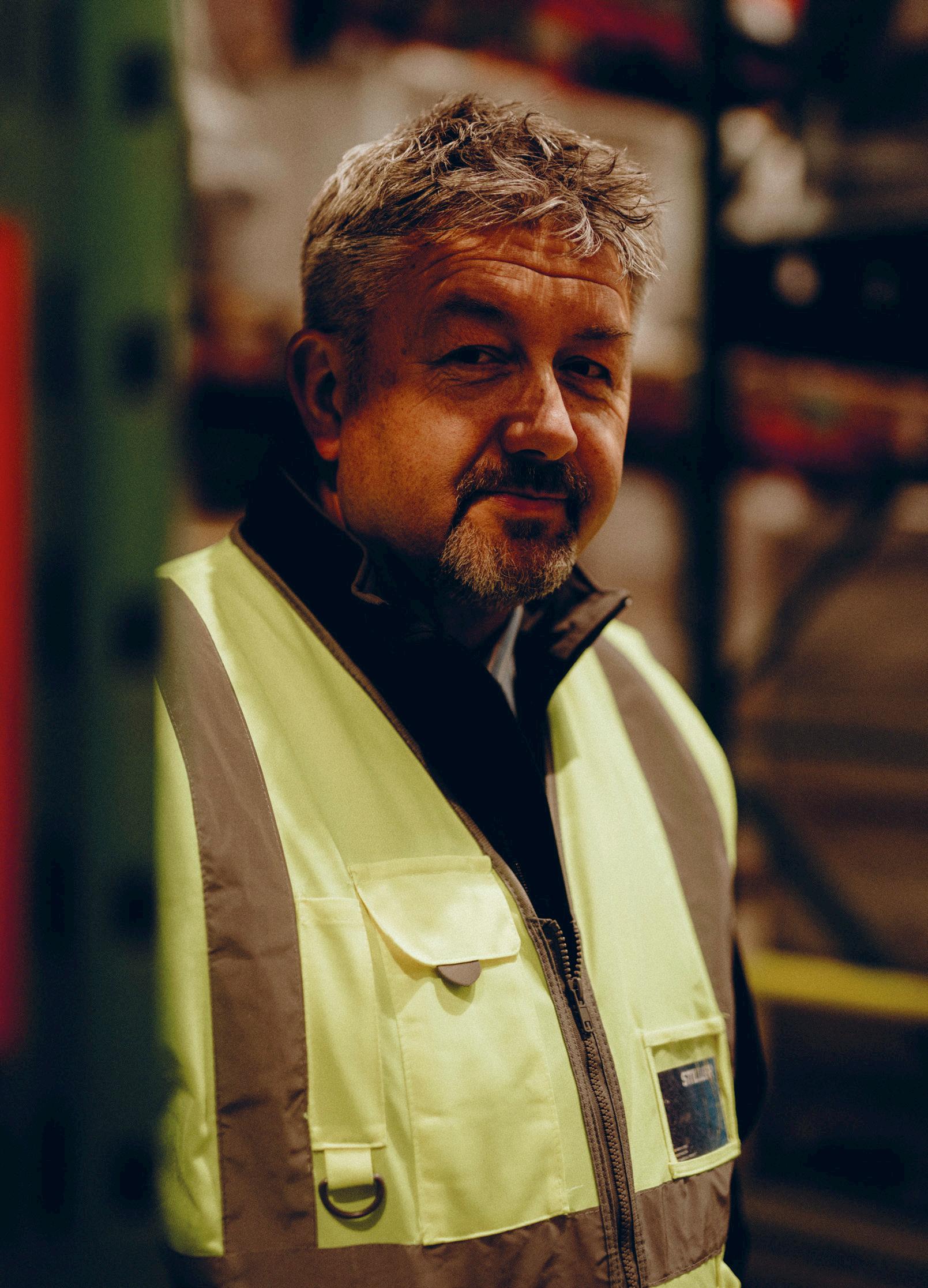

John McCabe Chief executive
North East Chamber of Commerce
www.necc.co.uk
LinkedIn: North East Chamber of Commerce
This is a huge year for the North East.
I believe we will look back at the mayoral and local elections and, of course, the General Election – whenever it comes – as pivotal moments for our business community and wider region.
In March, we worked alongside regional partners to deliver hustings.
These allowed our members to hear directly from mayoral election candidates, while providing those running for office with an opportunity to make their pitch to a highly engaged business audience.
North East businesses have been long-standing advocates for broader, deeper devolution; we know the huge opportunities in terms of power and resources that more devolution will bring.
We’ve worked hard to ensure candidates understand the issues affecting the region’s businesses, setting strong and fair agendas that really deliver.
Through our policy and representation work, we’re ensuring we are playing an active part in how people and businesses in the North East and the Tees Valley are going to be governed in the future.
Much focus this year will be on political events.
While we know these will have a huge impact, we also know it’s business as usual for many.
Our last Quarterly Economic Survey – the largest independent UK business survey of its kind – showed the complexity of economic conditions for businesses, painting a picture of two halves.
Hello and welcome to this special North East Chamber of Commerce publication within North East Times Magazine, which highlights our continued support for the region’s business community and celebrates members’ successes. connect • support • represent

Confidence is improving in key areas of economic health, while inflationary pressures around core costs remain.
One of the greatest strengths of our network is the diversity of our membership.
There are hundreds, if not thousands, of examples of businesses of all sizes, connecting and working together, thanks to their Chamber membership.
This was evidenced in organisations large and small, public and private, getting behind the Crown Works Studios proposals in Sunderland – paving the way for other North East businesses to play their part in our economic renewal.
Leading this fantastic organisation, I take great pride and satisfaction in seeing how our membership enables businesses to be the best they can be.
Whether utilising support services or cost savings, or taking part in our unrivalled events programme, our team works hard to ensure we’re delivering real benefit to our business community.
Our vision is to ensure the North East is a place where people and businesses thrive.
We’ll continue to do this through supporting, connecting and representing businesses like yours – promoting economic growth and prosperity.


Relied upon by companies the region over and beyond, third-generation Stiller Warehousing and Distribution is a literal driving force behind industrial progress. Here, business development manager Thom Prentice tells Steven Hugill about the North East Chamber of Commerce member’s market-leading support, its unswerving dedication to customer service and its role in boosting social mobility and the prospects of generations to come.
www.stiller.co.uk
LinkedIn: Stiller Warehousing & Distribution Ltd
Photography by Jamie Haslam
Thom Prentice pushes open a grey door and takes a couple of strides before stopping at a metal guard rail.
Before him, a lazy springtime breeze is blowing through a row of trailer carcasses, their curtain skins peeled back in unison to allow a bustling army of orange forklift trucks, all whizzing hydraulics and back-up sirens, to add a miscellany of pallet-bound goods to their insides.
Across the way, rising notes from a tractor unit’s engine add a baseline to the chorus, with a yellow earthmover, clearing land for expansion, finishing the chord.
Welcome to the sound of industry. Welcome to the sound of Stiller Warehousing and Distribution.
Ever since former German prisoner of war Gunter Stiller sold a herd of pigs to buy his first vehicle 70 years ago, the third-party logistics firm has been a palpable presence across the North East and beyond.
Providing storage, distribution and contract packing solutions from its sprawling Aycliffe Business Park bases, the company is a trusted partner for firms the world over.
And its support is delivered from a blueprint that remains harmonious to its founder’s vision.
“Service is absolutely everything to us,” says business development manager Thom of multi-award winning Stiller, which is now led by Gunter’s grandson Matthew.
He says: “Companies need to get materials into factories and products to market in the right way – and that is what we do.
“From warehousing to distribution and contract packing,
servicing clients is our fundamental reason for existing as a business.
“And we are totally reactive to their ever-changing needs.
“Take the global pandemic, for example.
“There was huge demand for home products, like flooring and outdoor furniture, during the furlough period, which meant some clients’ distribution volumes soared to home addresses – and we were able to support that.
“Similarly, when a customer opened a hand sanitiser production line, we provided both warehousing and distribution services to support, and when it augmented its sanitiser business with a portfolio of hygiene products, we helped again.
“Further responding to demand, we have now opened a contract packing service, which allows us to assemble, repackage and re-label items at scale, in ways tailored to clients’ needs.
“It’s really exciting to provide these services – alongside pickand-pack handling – for a number of companies’ on Aycliffe Business Park and further afield.”
Equally central to Stiller’s operational framework is its dedication to moulding services around customers’ nuances, rather than imposing a homogenous structure, and, moreover, its ability to do so at great speed.
“We pride ourselves on providing a prompt and proper quotation following a customer submitting a query,” says Thom of Stiller, whose Aycliffe footprint includes 500,000sq ft of food grade warehousing space, lorry parking and a vehicle maintenance workshop.
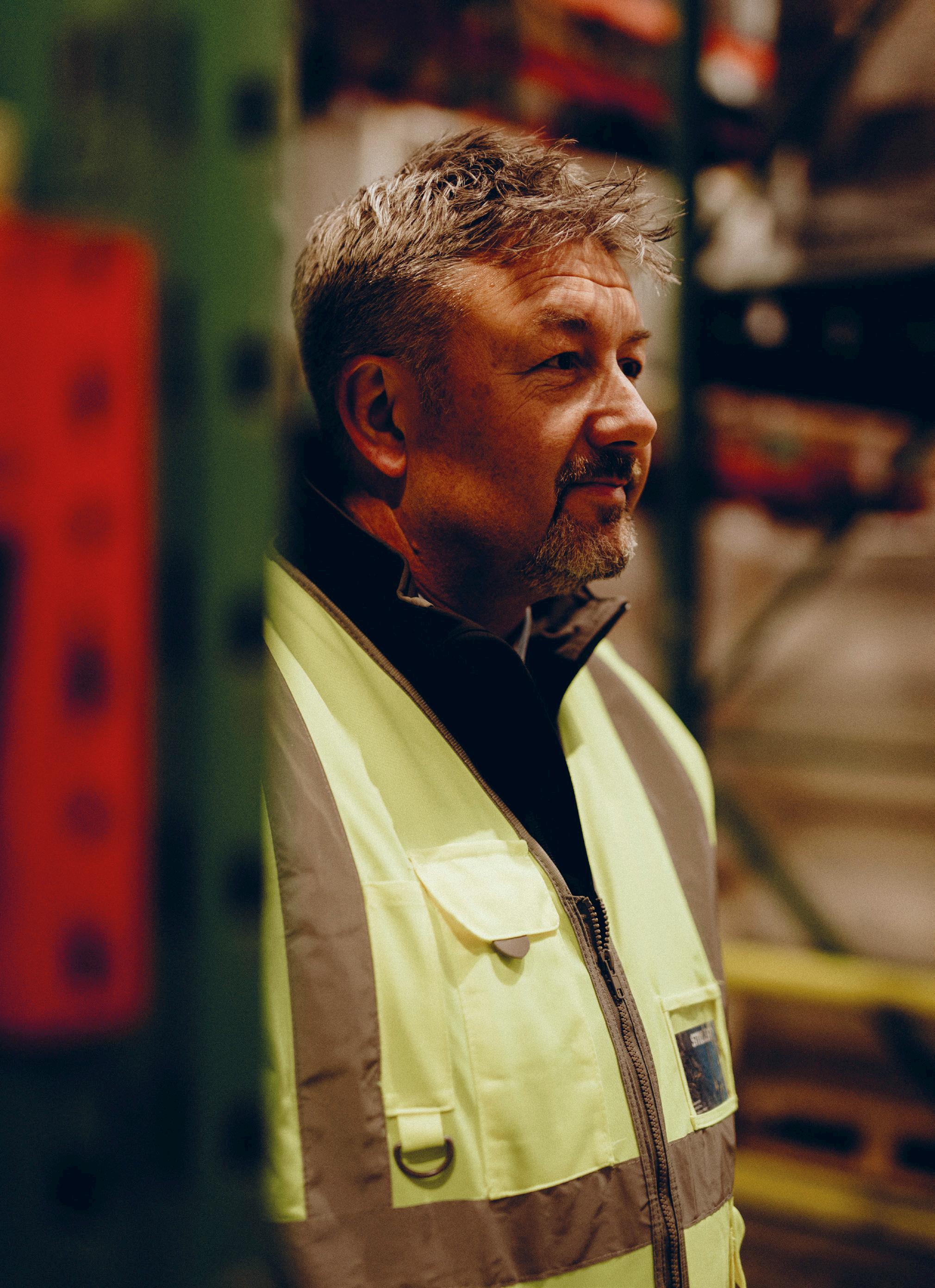

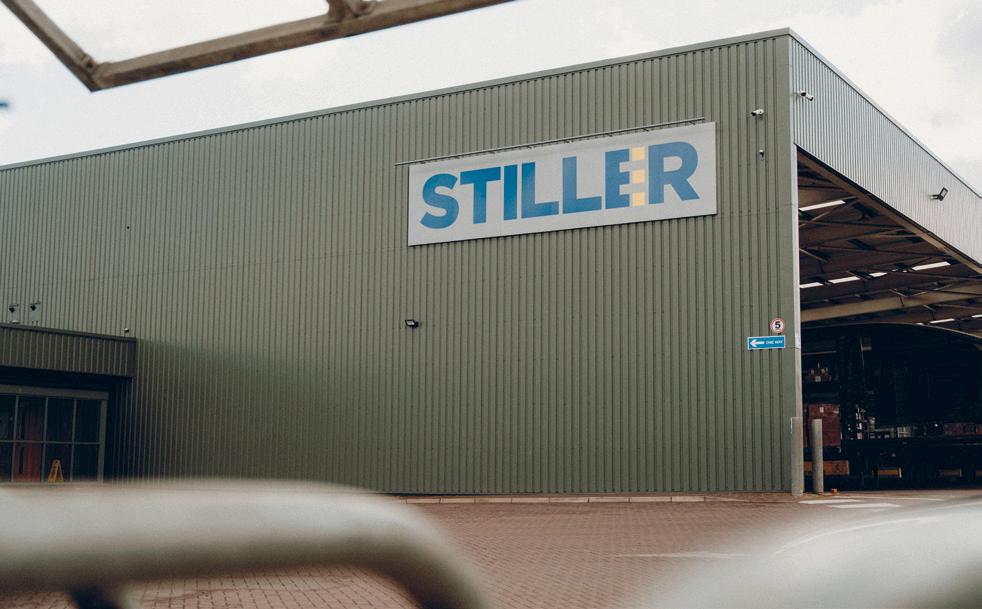
He says: “Businesses can’t sit around waiting for an answer, and our team’s decisiveness is fundamental to us securing a lot of work.
“Some questions are more difficult than others to answer – a warehousing solution could be anything because sectors are so diverse – but we nevertheless work hard to provide one.”
“And I get a real kick out of it,” says Thom.
He adds: “I often liken my role to that of Gregg Wallace on the BBC show Inside the Factory; I visit businesses, see how they do things and then come up with a logistical solution for them.
“We work the job through and understand it, which allows us to price it correctly, right down to the penny.
“That then enables the customer to go to market with a workable and cost-effective resolution and, in the process, creates a relationship with longevity.”
The durability, though, extends beyond Stiller’s customer base and indeed its many industrial ties – which include Palletline and The Hazchem Network partnerships – to the futures of its 200 plus-strong team and potential faces of tomorrow.
Thom says: “We don’t just look at our fundamental reason for existing as a business, we make sure we engage with all topics of interest that benefit our customers, staff and partners.”
“In our own little way, we’re making positive change,” he adds of Stiller, which supports The Children’s Foundation by overseeing the creation and delivery of the Baby Box project that comes complete with mattress, bedding, baby care essentials and developmental toys and books.
He says: “We store the goods, put the boxes together and manage delivery to the new mum.”
“It’s all free, and at the moment we’re sending them out daily,” adds Thom, who, over the summer, will represent the logistics sector on an NHS steering group that will push for funding to make the boxes standard across England, as they are in Scotland.
Furthermore, the company, which is a North East Chamber of Commerce member, is driving a local skills agenda.
connect • support • represent
Frustrated by a disconnect between industry and education, Thom worked with the North East Local Enterprise Partnership and Aycliffe Business Park Community – of which he is a board member – to launch the Aspire programme, which prepares youngsters for life beyond the classroom through site visits.
Thom says: “I came from a working-class background and remember school being a bit of a grey area, and that I didn’t get an understanding of university until I was in my late teens.
“However, once that seed had been planted, I was able to grow.
“And that’s the idea with Aspire.
“If children can visit a number of businesses and think, ‘that one suits me’, then we’ve made a difference.
“We had 240 children visit volunteer companies on Aycliffe Business Park during one day in February, and our intention is to have such visits annually – and do it forever.
“We engage with schools properly, providing a myriad of companies and sectors, from ourselves in logistics to firms like




3M, lawnmower maker Husqvarna, façade and rainscreen maker BTS Fabrications and swimming and activity centre The Fish Tank.”
And Aspire has already had great effect.
Thom says: “We had a 13-year-old come in during the latest visit, who said all he’s ever wanted to do is work for a business like Stiller.
“Furthermore, Shaun Hope, the new chief executive of Bishop Auckland College Group, which includes South West Durham Training, is keen to help develop the programme.
“Little things like that will help make a big difference.”
And such moves, says Thom, allied to Stiller’s wider engagement with the local business community, mean it will continue driving forward.
He adds: “We’ll keep on supporting customers’ needs, as we have for the last 70 years.
“That has always been our commitment – and it always will be.”

Esh Group is known across the North of England for its construction, housebuilding and civil engineering prowess. Here, Darush Dodds, director of corporate affairs and social value, talks about its relationship with the North East Chamber of Commerce, and how it is continuing to help the Bowburn-headquartered company secure fresh success.
www.eshgroup.co.uk
LinkedIn: Esh Group
What led Esh Group to become a North East Chamber of Commerce member?
Ultimately, to contribute to North East prosperity by harnessing our position as one of the largest privately-owned businesses in the region as a force for good, by collaborating with, learning from and sharing a platform with like-minded businesses from a range of key sectors.
The Chamber has a number of membership packages. Which is Esh Group subscribed to, and what does it deliver?
Esh Group is a partner member, the only construction sector member in the partner band.
We have access to unique engagement opportunities and intimate events, access to highly influential regional business representatives and a platform to influence regional and national decision-makers.
What key benefits has Esh Group derived from being part of the Chamber?
One huge benefit is knowledge sharing – helping businesses solve problems we may have already solved, and being connected with businesses who have successfully navigated problems we face.
The North East’s collective is astounding, and the Chamber acts as an independent broker to link regional experts.
Collaboration and innovation are other key benefits.
We work with several educational and sector specific groups to better understand emerging trends and to horizon scan – and our Chamber relationship is no different.
We benefit greatly when developing new programmes, adapting policies and amplifying the coverage of our social, economic and environmental programmes.
And I must also mention profile building within the region.
The Chamber provides a great platform for communications
through its large, relevant readership – the region’s business community.
We often share our content with the Chamber’s communications team, which is then shared on their website, electronic newsletter and social media.
Key to the Chamber’s membership offer is its expert policy support and high-profile events calendar. How have these helped Esh Group forge better industry awareness and connections?
We have recently contributed to events focusing on social value, procurement, carbon reduction and supporting the Armed Forces.
We regularly attend partner breakfasts, which always have very interesting keynote speakers, and relevant Esh colleagues attend events that help them develop knowledge in their respective fields, such as HR, people development, talent retention, mental health and finance.
Esh Construction, our main trading arm, delivers construction projects for all 12 of the region’s local authorities, with whom we have excellent relationships.
The Chamber provides a high-level view of regional and national politics and devolution through its events series, and allows us to learn from, understand, advise and, in some cases, challenge key political figures.
For what reasons would you recommend Chamber affiliation to a non-member business?
Make the most of your Chamber!
No matter the size or sector of your business, there is a membership package to suit your budget that will deliver return on investment.
The Chamber team is knowledgeable, supportive, well connected and, most importantly, they listen, ensuring they deliver a quality service centred on what is most valuable to your needs.



Pimlico Homes
For more information about Pimlico Homes, visit its website using the address at the top of this article.
Imad Ali is not a man to rest on his laurels. Already boasting a varied portfolio of interests in property and retail through family firm Aykley Group, his new venture Pimlico Homes – built by his Aykley Construction arm – aims to shake up the new build homes market, pitching itself at buyers looking for exclusive quality and design at the right price. With multi-million-pound projects across the region in the pipeline, Imad tells North East Times Magazine how he’s aiming high thanks to solid foundations.
www.pimlico.homes
LinkedIn: Pimlico Homes
In a crowded housing market, it takes a lot for a newcomer to stand out.
But with his first project in the heart of Durham city centre selling off-plan within days of going on sale, Imad Ali is confident he’s hit on a winning formula.
Aiming for the ‘sweet spot’ between luxury design, specification and competitive pricing, his Pimlico Homes marque is making waves across the North East property market.
The venture is an addition to the umbrella of Durham-based Aykley Group, which has a broad portfolio of interests, including student accommodation, HMOs and commercial and residential lettings.
Built up over 30 years by Imad’s parents, the company continues to diversify and grow under his directorship, including a new arm, Aykley Construction, which is leading the development of

Pimlico Homes’ projects.
It’s first signature series, Pimlico Court, a development of four individually-designed executive homes hidden away in a courtyard close to the centre of Durham’s nightlife, reached a record price per square foot for Durham when it went on the market earlier this year.
A one-off bespoke development of two executive homes is also planned for Newcastle’s exclusive Darras Hall estate.
“We’re new to the market and setting a new benchmark for quality and design, but at an affordable price too,” says Imad.
He adds: “The team really helps us stand out; we have award-winning designers and architects who are internationally renowned, and that sets us apart from the crowd.
“And because we construct our own sites, we keep a close eye on every step of the process.
We keep control at every point, from design and planning right through to the build and up to the final handover stage.
“Too often, new builds aren’t the best quality unless you’re going to pay above a million pounds.
“That’s why I want to set the bar in relation to the standard of finish – we’re going to sit in the sweet spot, where people know they’re getting a real quality home without the extortionate price.”
Aykley Group was founded by Imad’s parents, who immigrated to the UK in the 1980s with nothing.
He speaks with pride about their determination to succeed, starting with a retail shop in Durham before expanding into property investment, particularly
student accommodation and private rentals.
Educated at the prestigious Durham School, Imad quickly decided academia wasn’t for him.
“I did one year at sixth form, and then quit to work in my mum and dad’s shop at the age of 18,” he laughs.
He says: “I was working behind the counter, behind the scenes in the shop, really getting to understand that trade; I mastered retail at that point.
“I then ended up sort of managing our property portfolio for my parents, and really started to navigate around agents and the property scene in the North East, connecting and networking with people.”
He further cut his teeth in property working in corporate acquisitions and disposals for some of the largest retailers and leisure brands, and working with some of the largest landlords in the country, which propelled him into the business of property development, new builds and construction.
And his confidence at taking Aykley Group into property development comes from the knowledge the company has firm foundations.
He says: “Pimlico Homes and Aykley Construction are new ventures, but it’s backed by our core property portfolio and retail business, which is now matured and is stable and strong.
“There are strong assets backing these ventures and supporting us to go forward.
“The foundations are correct, and that allows us to go into this market and do something different, which has already proved incredibly successful over the last 12 months.
“We want to keep that up for the next three to five years, get as many sites under our belts as we can, and reach a new level of stability.
“But right now, it’s all about growth.”
Not content with taking on the residential property sector, Aykley Group is further expanding its portfolio with a shift into the leisure market through the refurbishment of the Court Inn, a traditional pub close to the city’s law courts.
Described by Imad as a bespoke, luxury scheme, the renovated building – which has stand out views of Durham Cathedral – is expected to open in July, sitting under the group’s sister company STA, which specialises in short-term accommodation.
He says: “We’ve got a multitude of arms in the Aykley Group, which allows us to look at different things.
“But the real focus right now is on new build

accommodation and developing Pimlico Homes.
“We’re going through a restructure to create a board of directors, we’re looking to bring in outside investors to really help us go for the big deals and we’re recruiting; we’re looking for young, hungry people that want to help us grow and succeed.
“We’ve got in excess of £65 million worth of deals in the pipeline at the minute, some really big deals which, if they come off, will really turn heads.
“Within the next five years, on the new build side alone, we’re looking to grow the turnover to £150 million.
“To me, there’s no limit to what we can achieve.
“We’re redefining what is possible in the residential market and using the hard work and success that has gone before to push on even further.”
www.kiln.cafe
Instagram: kilnouseburn / jun_rhee
Jun Rhee is master potter at Kiln, the Newcastle-based bar, café-restaurant and ceramics maker known for its range of exclusive tableware. Here, he tells Pete Mallon about the philosophy and inspiration behind his craft, his journey from East Asia to England and why he will never tire of championing handmade goods in a world of mass production.

Tell us a little about yourself and what you do
It’s less about what I do and more about what it’s used for.
I'm a craftsman; I create empty spaces using clay, things like noodle and porridge bowls, things you can use and feel. And I love it.
Describe your philosophy
When I started making pottery, I loved being able to make something out of my hands.
But once it became a daily routine, I began to feel a little stuck.
My back was hurting, my neck was hurting – I kept asking myself, ‘why are you making things by hand? And why with clay?’
I couldn't find the answer and then, one day, I went to church, where the priest told us about the Bible, and that how we are the clay and God is the potter.
That made me think again.
Clay is the reason I’m alive and here on the planet.
We discovered fire two million years ago.
At the same time, we found clay; it was the first chemical reaction without language and knowledge, and it has protected my DNA ever since.
When clay meets fire, it becomes denser, and when it is fired to more than 1000 degrees, it becomes a space where no bacteria can live.
By picking clay for tableware, people gave themselves more opportunity to survive, and it meant the population went up.
Then, one day, someone used a bowl to put food inside, and then another on the top as a lid, which gave us the jar.
That meant people could survive winters much more safely, and the population increased again.
That triggered agriculture, which triggered civilisations.
Clay has been fighting to protect me and my parents, and generations before them, in all that time.
That was when I really started to live clay.
Was this realisation the defining moment of your career?
I've been making something from clay for 16 years, and I had those thoughts maybe two years ago.
Before them, I looked at myself as someone who made ceramics using clay. Now, though, I consider myself a craftsman, a potter who uses clay to make life more beautiful.
At the beginning, I did it because it was cool and I enjoyed the creativity and the emotions that came with it.
But now, I see it as my destiny; it’s a job given to me by nature and God.
You grew up in South Korea. Tell us about your journey from East Asia to England’s North East
I wanted to introduce people in the UK to the values of pottery and handcrafts, because this is where the Art and Crafts movement and the Industrial Revolution both started.
As someone who uses their hands to create, I’m not against the machine as long as it isn’t killing nature and people.

"If you want to grow, you shouldn't accept failure; you need to focus on how not to fail"


But in a world where money is more important than nature and people, I can’t help but fight the machine.
The machine makes products faster, cheaper and better, but it ruins the power of natural circulation.
It makes rich people richer, and leaves poorer people worse off.
The other reason I came to the UK was William Morrison, who is known as a father of design.
He was also a craftsman against the machine, someone who railed against the culture of fast disposal, of making things cheaper and binning them for another.
He knew it was going to kill nature and that it was bad for the planet, so he encouraged a craft movement, one that made products with care and love.
And we need to bring craft back into culture, to make it by hand, rather than by machine.
Where and how do you seek inspiration?
I get inspiration from a need.
If I’m making a beaker, I need to think about where to put the handle.
But if I want to keep my tea warm for as long as possible, do I make the top narrow, so it retains the heat?
Or, if I want to drink my tea more quickly, do I make the top wider, so the heat can escape?
When I first made pottery, it was all about shapes and lines.
Now, though, it’s about the space and the need.
How important is failure in the creative process?
Failure doesn't teach me anything; not failing makes me grow.
If you want to grow, you shouldn't accept failure; you need to focus on how not to fail.
What advice would you give to someone in a creative role?
Find your reason, though it isn’t easy.
To do so, you need consistency, to wake up and work every day.
It might make you hate what you’re doing, but you need to be bold.
Finding an answer takes time. If you're lucky, you might get one straightaway.
But it might take a year, two years, ten years. Equally, there may never be an answer.
What goes through your mind when you’re at the wheel?
I ask myself why I’m doing this. And the answer is the future.
Do we want to keep this skill for the future, so we can still make things out of our hands?


"I want to be remembered as someone who made the world a more beautiful and cultured place, and who fought against the machine for handcraft value"

I know I can make ceramics, but what about the next generation, and the one after that?
What if we reach a day where everything is made by machines? That is what goes through my mind.
What kind of legacy would you like to leave?
I want to be remembered as someone who made the world a more beautiful and cultured place, and who fought against the machine for handcraft value.
I want people to think of me as someone who, while he made good ceramics, lived a happy and poetic life.
That's why I keep questioning why I'm making pottery, and why people should keep doing so across future generations. And I’ll never stop asking myself.





We have embraced a new way of thinking about regional print and its evolution for the next generation. We are firmly committed to being the voice of the region’s business community and championing our area’s industry, creativity and innovation.

Martin Lawlor is chief executive of Port of Blyth. Here, he tells Steven Hugill about the maritime hub’s recent record results, its ever-increasing prominence within the clean energy drive and its leading role in a landmark skills programme to nurture the renewables sector workers of tomorrow.

4The port recently announced record financial results for a third consecutive year. What were the key drivers behind the figures?
Our success is primarily down to the continued growth of our core offshore renewable energy sector trade, which has been boosted by major contracts to mobilise some of the world’s largest wind farms.
We have also managed to grow the significant cluster of clean energy companies within the port, which helped us handle a record number of vessels in 2023.
But it’s not just about offshore energy. Our other trades also played an important part, in particular, the twiceweekly container service between Holland and Blyth.
This is supported by our international logistics subsidiary Transped, and used by companies not only across the North East, but the rest of the UK too.
As you highlight, Port of Blyth is a crucial clean energy conduit, supporting many operators and projects. What makes its offer so compelling? You need to be in the right location (and we are, situated midway down the UK east coast) and have good facilities to handle large vessels and heavy lifts.
However, what fundamentally sets us apart from other ports is our focus on customer service, which is embraced by the entire workforce.
Every day, they demonstrate our core values, which include going above and beyond, working as one team and delivering a high-quality service.
As a result, an ad-hoc call by a vessel becomes a regular customer and, ultimately, becomes a longterm partner and tenant.
As we grow the cluster (with more than 50 businesses linked to the clean energy sector based around the port), the offer becomes even more compelling, as others want to be part of such a major hub, working together to create a really unique offering.
We won’t become complacent. But, in some ways, it now sells itself.
The port’s growth is being matched by wider developments around the Blyth Estuary, with subsea cable maker JDR’s new factory on Cambois’ Northumberland Energy Park – and Blackstone Group’s interest in the neighbouring ex-Britishvolt site – evidence of the rich potential for the area to create a new, post-coal economy. How exciting is it to be part of such transformation?
It's fantastic to be part of the wider Energy Central initiative, and to see major inward investment around the Blyth Estuary.
We are proud to have played our part in attracting these new inward investments and, in doing so, creating significant new job opportunities for the regional population.
Despite the failure of the previous car battery factory venture, the sites around the Blyth Estuary are some of the best in the country, in terms of scale, access to power and deep water port facilities.
As a result, I am confident further significant inward investments will follow in the not too distant future.
You are also chair of Energy Central Campus, which includes the Port of Blyth-based, soon-to-open Energy Central Learning Hub, that will train the next generation of renewables sector workers. How significant is the initiative, and what role will it play in driving forward the region’s – and the country’s –green agenda?
I had a vision for a clean energy-focused skills and
training initiative for a few years, and it is immensely satisfying to now be playing a leading role in helping it come to fruition.
Whenever I speak to the many clean energyfocused businesses around the port, they are less worried about winning new orders than having the right people and skill sets to fulfil such contracts successfully.
This was a key driver for me, and with a projected demand of 72,000 new UK jobs in the sector by 2030, we need to make sure as many of these jobs are attracted to the North East, creating economic growth and additional employment for our population.
Energy Central Campus is a significant initiative, with the first phase, the £15 million-plus Energy Central Learning Hub, due to open its doors by September and deliver STEM engagements to 3500plus young learners, together with 800-plus learners undertaking formal qualifications per annum.
It has attracted direct Government funding and ministerial visits, and could be used as a template for similar developments around the UK.
Energy Central is part of the new North East Investment Zone, which aims to create up to 4000 jobs and attract hundreds of millions of pounds of private sector backing. How exciting is it to be part of that programme?
I am delighted the importance of Energy Central has been recognised in designating the new North East Investment Zone, which will bring with it additional incentives to help attract further inward investment.
It is clearly an important factor, and would be considered alongside all other matters when an inward investor is deciding where to locate its facilities.
The growth of the port and the wider Energy Central partnership demonstrates those considerations are already increasing, leading to businesses choosing the Blyth Estuary as an ideal location for clean energy sector-related activities, in particular.
The Energy Central initiative around Port of Blyth is already a game-changer, which will no doubt be enhanced by additional North East Investment Zone incentives.
Host & Stay
For more information about Host & Stay and its management services, visit the website at the top of this article or call 01287 658171.
Host & Stay, a trailblazer in the holiday let management industry, has launched ManageGreen within its property management packages. Dedicated to fostering sustainability and conscious travel, ManageGreen represents Host & Stay's commitment to environmental responsibility and signifies an important step forward in reshaping the landscape of holiday let and short-term rental management.
www.hostandstay.co.uk/host
LinkedIn: Host & Stay
Host & Stay recognises the need to mitigate the environmental impact of the short-term rental sector.
ManageGreen is an initiative driven by a conscious effort to bring sustainability to the forefront of holiday let management, while also providing a multitude of benefits for property owners and guests alike.
The ManageGreen offering includes four key pillars: partnerships and carbon offsetting, sustainability badges, energy efficient solutions and conscious travel guides.
As part of Host & Stay’s environmental, social and governance strategy, ManageGreen was created on the principle of collaboration with like-minded, environmentally-conscious partners.

Through partnerships with brands including Who Gives A Crap, Wonky Coffee, EnviroRental, Eight Versa, Ecologi and GreenTheUK, Host & Stay is ensuring operations are aligned with sustainable practices.
By replacing consumables with more responsible alternatives, and working to eliminate single-use plastics, Host & Stay is making tangible strides towards reducing its ecological footprint.
Through its partnership with Who Gives A Crap, hundreds of trees have been saved from being cut down each year, as all holiday lets cleaned by Host & Stay have changed to recycled toilet paper.
Furthermore, Host & Stay is actively choosing to support a supplier that donates 50 per cent of profits to help build toilets and improve sanitation in countries with poor infrastructure.
Host & Stay is dedicated to minimising its carbon footprint through proactive measures and meaningful investments.
By collaborating with local and global initiatives, it is focused on tree planting and reforestation, with the end goal of mitigating Host & Stay’s carbon emissions to the fullest extent possible.
This proactive approach is just the start of how Host & Stay's leadership plans to address the pressing challenges of climate change.
Host & Stay’s ManageGreen offering also works with Sustonica, the first sustainability badge specific for short-term rentals.
According to Booking.com's 2023 Sustainable Travel Report, 76 per cent of global travellers say they
want to travel more sustainably over the coming 12 months, with 43 per cent willing to pay extra for travel options offering a sustainable certification.
With the global demand for sustainable travel options on the rise, Sustonica addresses a critical need in the market, providing Host & Stay guests with the assurance their choices align with their values.
And with more guests searching for sustainable properties, this means Host & Stay homeowners are more likely to see their properties appeal to a wider audience.
Another part of Host & Stay’s ManageGreen service is resiAIR™, a cutting-edge technology designed to optimise energy usage.
Using WiFi-enabled sensors, resiAIR™ intelligently regulates lighting and heating systems based on guest occupancy, resulting in significant cost savings, reduced emissions and enhanced guest comfort.
Designed exclusively for Host & Stay property owners, resiAIR™ can save property owners up to 32 per cent on their property energy costs.
From temperature to humidity, noise to occupancy, resiAIR™ captures it all, so property owners can quickly and easily benefit from efficiencies and cost savings.
As part of its ManageGreen initiative, Host & Stay empowers guests to make informed and sustainable travel decisions through its comprehensive digital travel guides.
From highlighting public transportation routes and EV charging spots to promoting more responsible activities and supporting local businesses, its online guides provide guests with the resources needed to minimise their environmental impact while maximising their experience.
By prioritising community engagement and the environment, Host & Stay is redefining UK staycations for the conscious modern traveller.
Dale Smith, Host & Stay chief executive, says: “We are thrilled to introduce ManageGreen, which is testament to our unwavering commitment to sustainability and responsible tourism.
“With ManageGreen, we are not only raising the
bar for holiday home management but also inspiring positive change within this industry and beyond.”
By embracing sustainability as a core value, Host & Stay is setting a new standard for holiday home management, demonstrating that environmental responsibility and exceptional hospitality can go hand-in-hand.

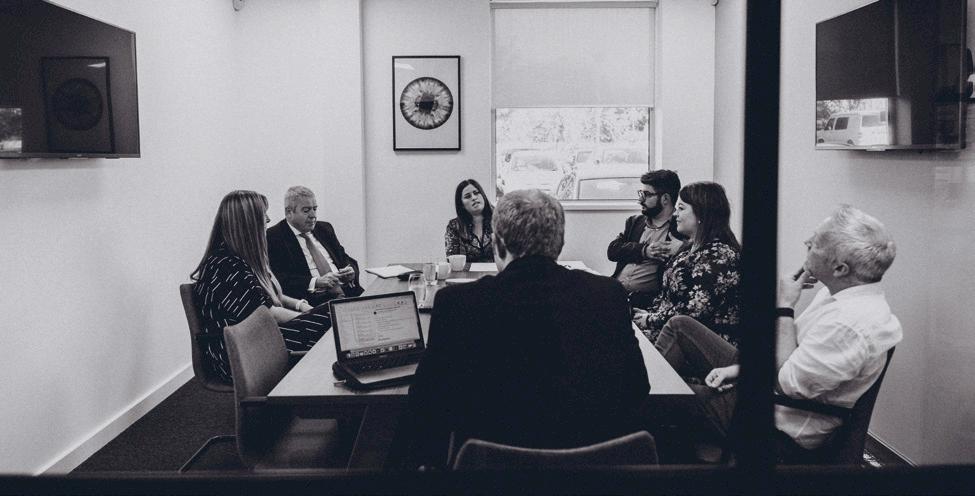
In the pitch and roll of the pandemic, cutting free from the office anchor was a necessity for many firms’ survival. Yet as tides of commercial practicality increasingly wash over operations, a good number are seeking to drop the bower again. With COVID-19induced flexible working having become stitched into workplace fabric, reestablishing a fixed base – and with it encouraging staff to return to the office environment – represents, for many organisations, a significant challenge and has materially changed demand in the commercial office sector. In a roundtable led by the commercial property team at Tees Valley independent commercial law firm The Endeavour Partnership, members explored the changes, considering how landlords and stakeholders can rise to the challenge.
Photography by Jamie Haslam
From kitchen tables to makeshift ironing board desks and box room revamps, the pandemic didn’t so much redraw as completely revolutionise working patterns.
The time of the commercial office was up, predicted many commentators, replaced by a new epoch of remote working.
But with the anticipated bricks-and-mortar exodus having failed to materialise, many companies have reconnected with the advantages a commercial office base can provide.
What has changed, though, said Alexandra Ketchley, a senior associate in The Endeavour Partnership’s commercial property team, are employers’ philosophies, with the office metamorphosing from a place of convention to one of opportunity.
She said: “The immediate thought after COVID-19 was that most businesses’ need for office space had dramatically reduced, and companies would be keen to realise the cost savings of offloading as much office space as possible.
“However, with many companies still bound by previously agreed contracts and arrangements, this time lag has created the space for businesses to step back slightly and consider more carefully the value a fixed office base can bring.”
Whether a headboard, a leaning tower of laundry, the kitchen clock or an artificially-created cityscape, we’re all more than familiar with video calls and their varied backdrops.
But for all their COVID-19 necessity and latter-day convenience, technology, said roundtable members, will never replace the personal touch, which they agreed is vital for employee development.
Roundtable: Creating the office environment of tomorrow

Alexandra said: “Being in the office allows for collaboration, which mutually benefits the employer and employee.
“The pandemic led to junior staff working more independently, but being exposed to more experienced colleagues in the learning environment of an office allows for greater opportunities to absorb knowledge and working practices from more experienced colleagues, as well as benefit from closer supervision.”
Mike Greene, chief executive at Stockton-on-Tees Borough Council, agreed, highlighting the value of impulsive exchanges.
He said: “Things learned outside meetings and relationships made over a coffee are just as important as formal working practices.”
Equally important, said Natalie Kay, partner in The Endeavour Partnership’s commercial property team, and Chris Pearson, partner in the office and retail agency at commercial property consultancy Naylors Gavin Black, are the connections spawned from simply being in proximity to other professional contemporaries during the working day, which working from an office in a commercial business district can provide.
The group agreed the commercial office environment can be an important tool for companies to entice workers back to a collaborative working environment.
But Rachel Fergus, UK insurance and facilities manager at Stockton-based multinational logistics company Den Hartogh Group, highlighted the key challenge for businesses was to find balance, enabling them to access the benefits of collaborative working, while recognising the importance of flexibility to employees.
She added: “One of the first things we’re asked about during interviews, particularly from those employees in their 20s, is flexible and homeworking.
“We understand the importance of this to employee retention and have adopted a hybrid model where staff can split their days between the office and home.”
WHAT, THEN, ARE
Compare and contrast the rainy, traffic heavy commute against the ease of waking and walking to the room next door to begin another day, and the benefits of flexible working are obvious.
What companies need to do, therefore, said panellists, is create an office landscape that caters to the needs of employees who are not well served by homeworking – new technology, pragmatic working spaces, attractive vistas, social hubs and access to facilities, which add real value.
Alexandra said: “What businesses now need their commercial offices to deliver is a dramatic change from what most businesses were seeking preCOVID-19.”
Dean Benson, founder of Stockton-headquartered digital marketing agency Visualsoft, whose offices serve as a blueprint for those companies seeking to create a so-called destination office discussed his company’s

“Go back 15 years and someone would join an organisation and stay.
“But the landscape has now changed so much that businesses need to do much more to stand out from the crowd"
–Mike Greene, chief executive at Stocktonon-Tees Borough Council

“It would be priceless to have a culture where businesses mix on a regular basis in communal areas outside of their own building.
"And it would be an equally fantastic way to meet tenant demand without every landlord having to invest in their own building in similar ways"
–Alexandra Ketchley, senior associate in The Endeavour Partnership's commercial property team

continued investment in working spaces like pods and an auditorium, but also acknowledged firms must go further than just fit-outs if they are to create a place where employees genuinely want to come to work.
He said: “It’s about encouraging collaboration between teams.
“We have running and chess clubs, for example, which allow people who want to get together to do so; you must encourage like-minded people in that way.”
Dean found support from Rachel, who added: “One of our core values is fun in business.

“It hasn’t been the death of the office.
“The demand remains, just in a different form”
–Chris Pearson, office and retail agency partner at Naylors Gavin Black Dean Benson, founder of Stocktonheadquartered digital marketing agency Visualsoft, with Natalie Kay, a partner in The Endeavour Partnership’s commercial property team Alexandra Ketchley, senior associate in The Endeavour Partnership’s commercial property team
“Our offices can deliver that for our employees through social events like our breakfast club and summer barbeques, alongside health and wellbeing and gym facilities.
“That said, we are continually being asked for more.”
Mike concurred, highlighting the challenges firms face in retaining employees in an increasingly transient workforce.
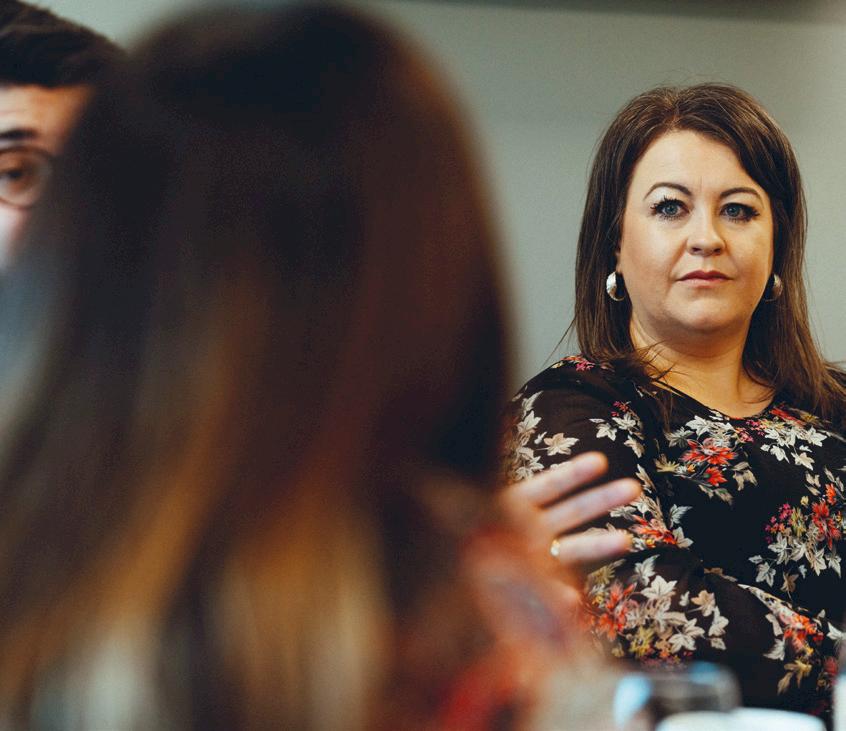
He said: “Go back 15 years and someone would join an organisation and stay.
“But the landscape has now changed so much that businesses need to do much more to stand out from the crowd.”
Natalie used The Endeavour Partnership as a case study to emphasise how requirements for commercial offices are evolving among tenants.
She said: “Looking to the future at Endeavour, although there are typically far fewer employees in the office each day than pre-COVID-19, we are not necessarily going to downsize but we certainly will be looking to use the space we have very differently – incorporating more technology, better collaboration space and improved social areas to create an enhanced client and employee experience.”
Chris added: “It hasn’t been the death of the office.
“Every business with the opportunity to break a lease has gone back to the drawing board to re-evaluate what their commercial office space must deliver for them.
“It may be more serviced facilities, it may be smaller spaces spread across different locations.
“The demand remains, just in a different form.”
As for the ability of the market to meet changing demands, the panellists advocated the ripping up of outdated building blueprints, throwing out siloed spaces and regimented desks to create open-plan, collaborative hubs that meld tactility with technology.
Chris said: “The last few years have actually been positive for the local office market, but only if you’ve got the right buildings and they can be adapted – the cost of refurbishment works needed mean landlords either have a problem, or an opportunity.”
He was backed by Natalie, who said such moves hold great capacity to reintegrate North East natives presently working flexibly for firms across the UK into the area’s commercial landscape. Roundtable:
There was agreement around the table that those able to invest in their commercial office offerings to enhance the facilities available to prospective tenants in line with the changing demand are likely to enjoy the highest occupancy levels.
Chris also highlighted serviced office provision, using flexible workspace operators Orega and Cubo – which have taken parts of Newcastle’s St James’ Gate and 12-storey Bank House, respectively – as examples of ways to bring new working cultures to buildings.
She said: “Historically, a lot of people left our region to work in larger cities elsewhere in the country.
“Many of these people now find themselves working remotely most of the time.
“With the cost of living being far more affordable in the North East than a lot of other areas, people employed in other parts of the country could actually now live here and make use of good quality shared office space in the region, in the process meeting other like-minded people and businesses.”
Dean also urged companies to take matters into their own hands and develop stronger alliances between neighbouring firms to share assets such as car parking, meeting rooms and physical activity hubs.
He said: “Our auditorium is not used 24/7 – it could be used by others.”
Chris suggested exploring the idea of neighbouring building owners joining into a co-operative programme, in the hope collaboration could deliver new shared office infrastructure more efficiently, while also sparking greater commercial crosspollination between businesses.
Alexandra added: “It would be priceless to have a culture where businesses mix on a regular basis in communal areas outside of their own building, and it would be an equally fantastic way to meet tenant demand without every landlord having to invest in their own building in similar ways.”
COULD THE WIDER IMPACT OF OFFICE REDEVELOPMENT ALSO HELP CATALYSE TOWNS AND LOCAL
Along Stockton’s high street, monumental change is happening.
Where the town’s Swallow Hotel and Castlegate Shopping Centre once stood as commercial pillars, heaps of rubble are now the only marks of their existence.
Demolished amid a council programme to breathe new life into Stockton’s heart, the space is being transformed into a ribbon of
Roundtable: Creating the office environment of tomorrow
greenery where large-scale community and market events will complement traditional high street commerce.
Citing Stockton’s Teesdale Business Park, which both The Endeavour Partnership and Visualsoft call home, Mike spoke of a natural symbiosis between urban redevelopment and the office revamp.
He said: “The retail sector in the 1990s had the view of cramming stores into a space.
“But people want much more from town centres now, like leisure opportunities, places to dwell and activities.
“It’s the same with office parks; those that just cram people in aren’t going to sell it.
“Towns are going to come out of the new way of working better than cities, in the sense you can have office space in nice surroundings where the commute is short.
“If we have offices next to centres with increased leisure and dwell time, it is the perfect setting.”
Mike was supported by Alexandra, who viewed the situation through a prism of commercial reality.
She added: “We want landlords to invest, but why would they if we don’t have a wider urban centre that is going to attract businesses and people, and make them stay?”
Dean raised the importance of easy access to the commercial sectors of the town to allow business to properly integrate into the wider local area, including the revamping of existing walking and cycling routes to encourage more sustainable travel and urged greater investment in public transport.
Dean said: “Thornaby station is a mainline rail station.
“Small changes, like adding a colourful path to create a nicer journey from the railway station to the business park and including business park branding at the station, could make the business community feel much more integrated to the wider town.”
Mike added: “It’s a long-term process, and we need to work with both strategies, certainly in the short-term, to start actioning positive change.”
As the largest independent commercial law firm in the Tees Valley, The Endeavour Partnership is experienced in all aspects of business law. Recognised for its specialist departments and multiple layers of expertise, the firm offers commercial legal solutions that go beyond static advice and is committed to producing innovative options for clients while demonstrating business-focused thinking.
To learn more about its commercial property team and the support it provides, contact 01642 610300.
Offers a unique choice of beautiful store design, an ecommerce platform with everything retailers need out-of-the-box and deep expertise in performance-driven digital marketing.
A firm of Chartered surveyors and commercial property consultants based in Newcastle. It brings a fresh and dynamic approach to the North East’s property market, striving to offer the best possible results for clients.
A leading logistics service provider, the family-owned organisation was established in the Netherlands in 1920 as a bulk logistics service provider for the chemical, gas, polymer and food industry, and today continues to provide operational excellence.

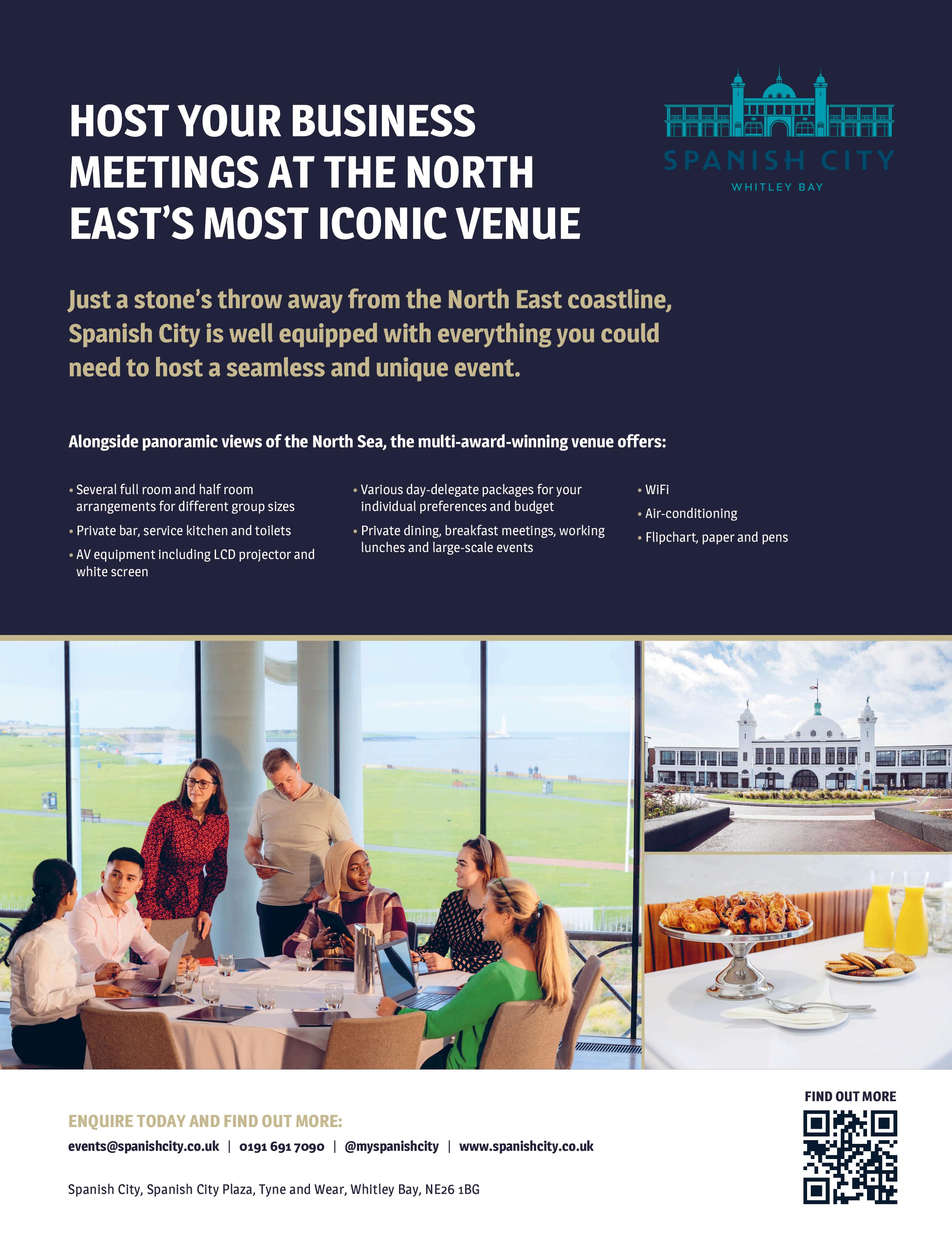
The Crown Jewels The Crown Jewels
The Crown Jewels
The Crown Jewels
The Crown Jewels
The Crown Jewels
The Crown Jewels
The Crown Jewels

The Crown Jewels
The Crown Jewels
The Crown Jewels
Words by Colin Young
Photography by Christopher Owens
The £450 million Crown Works Studios are going ahead, with work expected to start on a former shipyard site beside Sunderland’s River Wear in the summer, and the first smacks of clapperboards due to be heard in 2026. And it’s all a dream come true for Leo Pearlman, a co-founder of production company Fulwell 73, which will oversee the venture alongside Cain International, and the many others who have put their hearts and souls into making it a reality. Here, Leo speaks to Colin Young about the endeavour, its economic and employment potential – and his secret fear.
dream, speaking to those students was one of the toughest conversations.
“I had a follow-up piece because I thought the number would be high.
“But they said they had no choice but to do whatever else.
“They said they loved the North East, that they didn’t want to move to London or Manchester, but that there weren’t many jobs in the creative industry here.”
Now, of course, Leo can barely stop smiling.
After years of planning, months of campaigning, and meeting after countless Zoom call, Leo, Sunderland and the North East film industry have got their way, and Crown Works Studios will be built.
Chancellor Jeremy Hunt confirmed so in his Spring Budget with £37 million of funding – rising eventually to £120 million through a so-called trailblazing devolution deal with the new North East Mayoral Combined Authority – which has unlocked a £450 million investment from FulwellCain, the joint venture between Fulwell 73 and investment firm Cain International, that is backed by Sunderland City Council.
4When Leo Pearlman spoke to North East Times Magazine three years ago, he was a man on a mission.
His world-renowned production company Fulwell 73 had just opened an office in Sunderland, and there was talk of a film studio ‘in the 300-mile corridor between North Yorkshire and Glasgow’, bringing jobs and investment, in all sectors, and using creative arts to boost the economy.
The previous day, he'd spoken to University of Sunderland media students at Sunderland Business Festival, asking how many of his audience saw themselves using their degree to work in the industry.
Only 15 per cent raised their hands.
Dismayed by such a pessimistic outlook in his familial home city, Leo set his mind on a project that would transform the future of Sunderland and many thousands of people too.
And he quickly found a number of kindred spirits.
He says: “When this was just a pipe
Crown Works Studios, named after the former shipyard where it will sit, will include 20 premium sound stages, production workshops, offices, a vendor village, admin and social facilities, a multistorey car park and extensive backlot.
It is tipped to generate more than £336 million a year, and more than 8500 new jobs across all sectors.
Think Atlanta in the States, says Leo. He says: “Twenty years ago, there was no sport, no music and no-one had ever made a film in Atlanta; now, it’s the second largest production hub in the US after California.
“Sunderland and the North East have the opportunity to be exactly that; a major production hub outside London and the South East, and certainly the second largest in Europe.
“There’s no doubt about it. That's the ambition.”
That initial ambition, Leo acknowledges, came from Sunderland City Council.
Sunderland is Fulwell 73’s city and their football club.
And it will also be the centre of this hugely ambitious project; as significant for the region as Nissan’s arrival was in the 1980s.
They looked at more than 40 sites, but the answer was on the doorstep.
Leo says: “I hate the idea of anyone thinking this is some kind of charitable endeavour.
“It absolutely isn’t.
“It is, first and foremost, a commercial endeavour, our thesis being that the UK creative industry needed a second major production hub.
“Our business development team pulled together the analysis and, in many ways, because we’re Fulwell 73 and with our connection to Sunderland, it actually would’ve been better from a POV perspective to be in Durham, Northumberland or around the borders, because then nobody could point at us and say, ‘well, you’re only doing it because it’s Sunderland’.
“But Sunderland City Council were just the most ambitious, entrepreneurial and commercially-minded authority we spoke to.
“From the first minute we talked about this opportunity, they were the ones that said, ‘it's not going anywhere else. It's going in Sunderland. End of conversation’.
“We said, ‘OK, prove it’.
“And every step of the way they've done so, to the point where you just go, ‘I’m not going to fight anymore. We’re putting it in Sunderland’.
“And that's genuinely how this came about.”
Leo adds: “I feel a pressure for this like I don't feel for anything else we're doing; it means far more to me.
‘Everything we do is important, but this one is important in a different way; this is genuinely a once-in-a-generation opportunity and such a big one.
“But, I'm bullish as ever. We're going to
do it.”
Another major protagonist, he says, is ‘force of nature’ Alison Gwynn, chief executive of North East Screen, who has pulled together 12 local authorities and secured a £25 million BBC contract for the next five years.
She’s currently preoccupied with sourcing sheds for storage for a major film production this year – which won’t be an issue once phase one of Crown Works Studios is completed in late 2025 and early 2026.
It epitomises the collective spirit which attracted the group to the project and a palpable return to the North East for Leo and Fulwell 73, way beyond how much money they make.
Leo, cousins Gabe and Ben Turner and their friend Ben Winston set up their hugely-successful production company in 2005, honouring Roker Park’s Fulwell End, their love for Sunderland AFC and a certain year the club won the FA Cup.
James Corden joined as a partner in 2017.
Leo says: “This means the world to me because my family had a business in Sunderland for more than 120 years, and it makes me so proud when someone hears my surname and they say, ‘I remember your grandpa and your great uncle – good guys’, and they remember the business.
“And the idea that my grandkids or my great-grandkids will look up at a business we started in Sunderland feels incredible.
“That’s why the best moment was calling my dad after the announcement.
“He was the last of our family to leave the North East, after he sold the business about ten years ago.
“Getting to call him and say, ‘I think we might be doing this’, was amazing and super important.
“He put the phone down, so I didn't hear him cry, and he called me the next day once he’d recovered and dried the tears.


Alison Gwynn Chief executive North East Screen
The new film studios will take the North East from national player to global player, and the scale of production, from feature films to factual programmes, will be gobsmacking.
The huge game-changer in all this was the partnership with the BBC, which wanted to make programmes in our region and needed evidence of investment in infrastructure and skills.
And we fought hard to make that happen.
North East Screen helped bring together 12 local authorities – from Redcar & Cleveland to Northumberland, under the auspices of the North East Screen Industries Partnership – which developed an alliance and a five-year, £25 million agreement with the BBC.
We're two years into that deal and industry is moving faster than anybody anticipated; our crew bases are up 80 per cent and production here this year is expected to be up 300 per cent on last year, which was also up on the year before.
With all that in the background, the plans for the film studios came at the perfect time.
Leo’s heart may have been set on Sunderland, but the deciding factor was Sunderland City Council, which has really driven this.
Without the studio, we would still see more opportunities for jobs and inward investment from the sector in the North East, but there is a limit to what we can do and offer without the infrastructure.
We want more productions and we want them to stay longer.
For example, a couple of years ago, we had Indiana Jones filming at Bamburgh Castle and Dungeons and Dragons, at Alnwick Castle, at the same time.
But both productions could only stay so long because there wasn’t the infrastructure to fully support them.
If we've got the infrastructure in place and the studios, we are looking at breaking into the global market.

“I wish my grandpa was still around because he never understood my job.
“He would always say, ‘I don't get it. How do you make money doing what you're doing? Is it real?’
“‘It's just feathers’ – that was his line.
“I’d say, ‘what do you mean?’, and he’d say, ‘you don't make anything physical’.
“So, with this one, I could’ve called him and said, ‘get this – it’s got bricks and stuff’, and he would’ve got it.”
Little did Leo know, after his demoralising meeting with Sunderland’s students, they were perfectly positioned in Wearside to take their transformational vision forward.
Back then, he was just a Sunderland fan with a film crew, a Netflix documentary about his beloved Sunderland AFC and other significant projects attached to the Fulwell 73 name.
Today, he is on the club’s board and a Foundation of Light trustee.
And he is a voice in the region, as well as a voice for the region.
It was at the launch of the heart-rending final series of Netflix hit Sunderland ’Til I Die that Leo made his impassioned plea for Government backing.
Local newspapers heard the call and splashed the project across their front pages in a co-ordinated campaign that
sent a clear message to Westminster.
All six now adorn Fulwell 73’s London offices.
Leo says: “I came in and someone had put them up; it was an amazing moment, very special.
“Even talking about it now – and I'm not being dramatic – gives me goosebumps and makes me a little bit teary.
“The tidal wave of support, love and community we’ve felt from the minute we announced this project, mixed with a fair amount of completely justifiable incredulity, has carried this.
“It's one of the first reasons why massive projects like this don't get built in other parts of the country.
“You see projects announced but they ultimately fall down because the community doesn’t really want it, understand it or get behind it.
“But we had the most unbelievable level of support, which was encapsulated by the local newspapers coming together and supporting it with the same enthusiasm.”
Leo adds: “We're incredibly lucky as a city to have the council, and to be at a point in time when devolution is going through, to have people, who have divisions, brought together.
“The combination of different pieces has led to a perfect storm.
“I’m not sure I know the full extent of the impact this is going to have – I shout the numbers out loud, because it's the easiest way to get people engaged and excited.
“If I close my eyes and think about what some of them might look like in ten years’ time, I'm not sure. It's as bold as you can dream it.
“I’ve said it before that 85 per cent of the 8500 jobs are not specific to the film industry; drivers, hairdressers, caterers, plasterers, labourers, electricians, carpenters, highly-skilled blue-collar jobs.
“You might work on the next Barbie
movie or the next Indiana Jones movie, but you have a skill set that enables you to work outside of that in the downtime as well.
“When you speak to schoolkids, and they say they’d love to work in anything creative, you see the looks on parents’ and teachers’ faces.
“I get it, because you can see they’re thinking they might as well say they want to be a footballer.
“That’s why I love the idea of all those pointing up the road at the studios and saying, ‘I'm just going to work there’.
“That feels pretty amazing.
“I feel pressure because there's 100 steps between now and where we're building, and a million things could happen.
“But I love hearing from the colleges and universities, about how they're seeing huge increases in applications for courses in the creative industries. That’s pretty cool.”
Yet Leo remains a troubled man.
With planning permission granted soon after the Chancellor’s announcement, it is hoped work will start in the summer.
But if Leo has a deep sense of foreboding about that, it has nothing to do with the project.
He says: “I absolutely hate the cold, I'm not very Northern.
“There are a few people from our offices in Sunderland who go swimming in the North Sea every morning at daybreak; rain, wind or sunshine.
“And I said, ‘the day we break ground, I'll go for a swim in the North Sea with you all’.
“So, the work starts in July or August, because there's no ******* way I’m going swimming in the rain! Summer is the answer.
“Late 2025, early 2026 is the dream to have first production and completion of phase one.
“Then we'll go from there.”
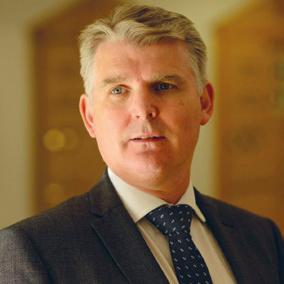
HOLLYWOOD. PINEWOOD. ATLANTA. SUNDERLAND...
Patrick Melia Chief executive Sunderland City Council
It really can’t be overstated just how big a development Crown Works Studios is for Sunderland and the wider North East, which is why it fills us with immense pride as a council to have been able to support the project.
Economically, it will provide a boost not seen since the arrival of Nissan in the 1980s and, culturally, it will see Sunderland share a stage with some of the world’s largest TV and film production hubs, from Hollywood to Pinewood and Atlanta.
Young people will also be able to consider a career pathway their parents and grandparents could never have dreamed of, never mind the fact these opportunities will be right on their doorstep.
Add to that the plethora of other developments ongoing across the city, from the new medical school at the University of Sunderland to Riverside Sunderland and Nissan’s planned expansion and AESC’s gigafactories, and we couldn’t be happier with how our city plan is progressing.
In less than five years, we’ve transformed swathes of brownfield land into shovel-ready development sites.
And with more cranes than ever before now perched over the city’s skyline, and work on Crown Works set to begin imminently, it’s even harder to imagine how much the picture will have changed another five years from now.


Closing this edition of North East Times Magazine, Zoe Lewis, Middlesbrough College Group principal and chief executive, highlights the education provider’s latest multi-million-pound teaching investments, its place within the net-zero economy and its delight at significant Ofsted praise.
4The group recently secured nearly £7 million backing to create learning spaces for adult education, health and care and green skills courses. What will those environments look like, and how will they boost provision?
The funding will pay for a new Adult and Community Learning Centre, a new electric vehicle workshop, a retrofit workshop and a new clinical and community care simulation suite, to provide a state-of-the-art educational environment for health and care students, and bring an interactive, immersive and unique style of teaching and learning.
Those additions will build on the £12 million TTE Technical training and education centre, which will open on the Middlehaven campus in September, replacing a nearby South Bank site. What does the investment say about the group’s commitment to student learning?
In learning as in life, you need to have the best tools available to do the job properly, so we believe that, wherever possible, our students should have access to the best facilities on offer.
This is particularly important when it comes to technical and vocational skills, which often need to be transferred directly to the workplace – if you’re learning things on out-of-date equipment, you won’t be job ready.
Our campus is now home to more than £120 million worth of buildings and facilities, and this investment feeds through into student experience and outcomes.
We were delighted our recent Ofsted report said we had “vibrant learning environments that are very well resourced”, which meant “learners and apprentices are exposed to the world of work, and are well prepared to progress into employment”.
Teesside’s industrial landscape is undergoing significant change as firms switch to more sustainable operations. How is the group helping ensure those companies have access to the workers of today to meet such demands, while creating a pipeline of talent for the advances of tomorrow?
After ten years of investing in science, technology, engineering and maths, we are now the largest provider of engineering training for school leavers in the country, and one of the largest apprenticeship providers – through our training arm Northern Skills –in the North East.
This means we have a huge responsibility to ensure we have one eye on the present, as well as one eye on the future, when we assess the specific courses and training we offer.
We have developed fantastic partnerships with employers right across the North East, and have mechanisms to ensure we listen carefully to the skills they need.
And when it comes to inward investors, it is even more important we provide the support required, so we can minimise displacement from the current jobs market for local employers.
Recent examples of this include our support for Hitachi, Anglo American and, most recently, SeAH Wind, with everything from supporting recruitment to upskilling their existing workforce.
We already offer training in offshore wind and have recently invested in new provision to ensure the hydrogen, retrofit and carbon capture developments can be catered for as net-zero jobs increase in the coming years.
Ofsted recently gave us a rare ‘strong’ judgment for our contribution to meeting skills needs, with our apprenticeships, adult learning programmes and student development among six aspects of the college given the top ‘outstanding’ rating.
www.mbro.ac.uk
@mbrocollege

